More than 700 candidates have already registered with the Federal Election Commission to run for president in 2020.
The election is still more than a year away, but the Democratic playing field is shaping up to be the largest in history. Here are the people officially running for president.
The Incumbent: President Donald Trump
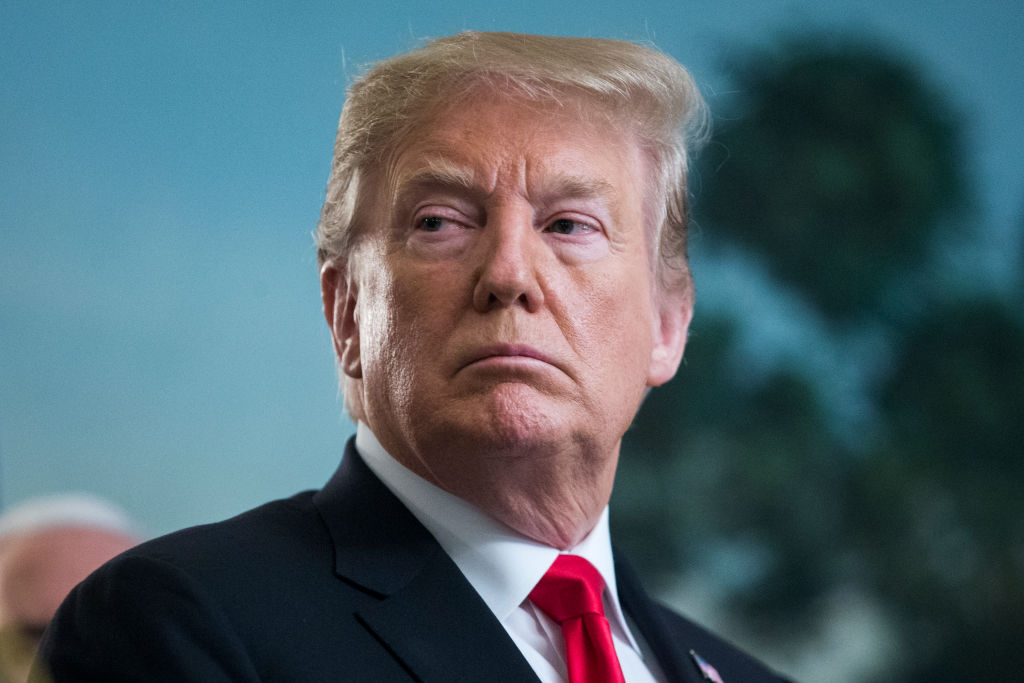
Some pundits thought political outsider Donald Trump might not like his job in the Oval Office, but he wasted no time registering to run for re-election. Sarah Huckabee Sanders, then-Deputy Press Secretary, told reporters, “Of course he’s running,” in June 2017. In February 2018, conservative-outlet Drudge Report confirmed it. Brad Parscale, who led Trump’s digital strategy in 2016, will be his campaign manager.
Qualifications: Trump graduated from University of Pennsylvania’s Wharton School of Business with a bachelor’s degree in economics. He previously starred in a reality television show and made millions of dollars in real estate dealings. As President, he’s passed a tax bill that effectively lowered taxes for about 80% of Americans, according to the Tax Policy Center, nominated two conservative judges that were confirmed to the Supreme Court and has seen the unemployment rate remain low.
Rationale: From a historical angle, Trump’s a shoo-in for the 2020 GOP nomination. Only one elected President before him, Franklin Pierce, wanted but did not receive his party’s nomination to run for a second term.
Controversies: While Trump has benefitted from that stable economy — among other achievements — the Administration has taken countless hits for Trump’s former associates, his tweets and his policies. Two years after the election, he has not released his tax returns, his second Supreme Court pick was accused of sexual assault and his EPA chief resigned amid piling ethics complaints. His Administration has been sued over an immigration policy that separated migrant children from their families and has watched Trump’s former colleagues face charges and indictments for foreign lobbying, tax fraud and lying to federal officers.
The Challengers…
Former Vice President Joe Biden
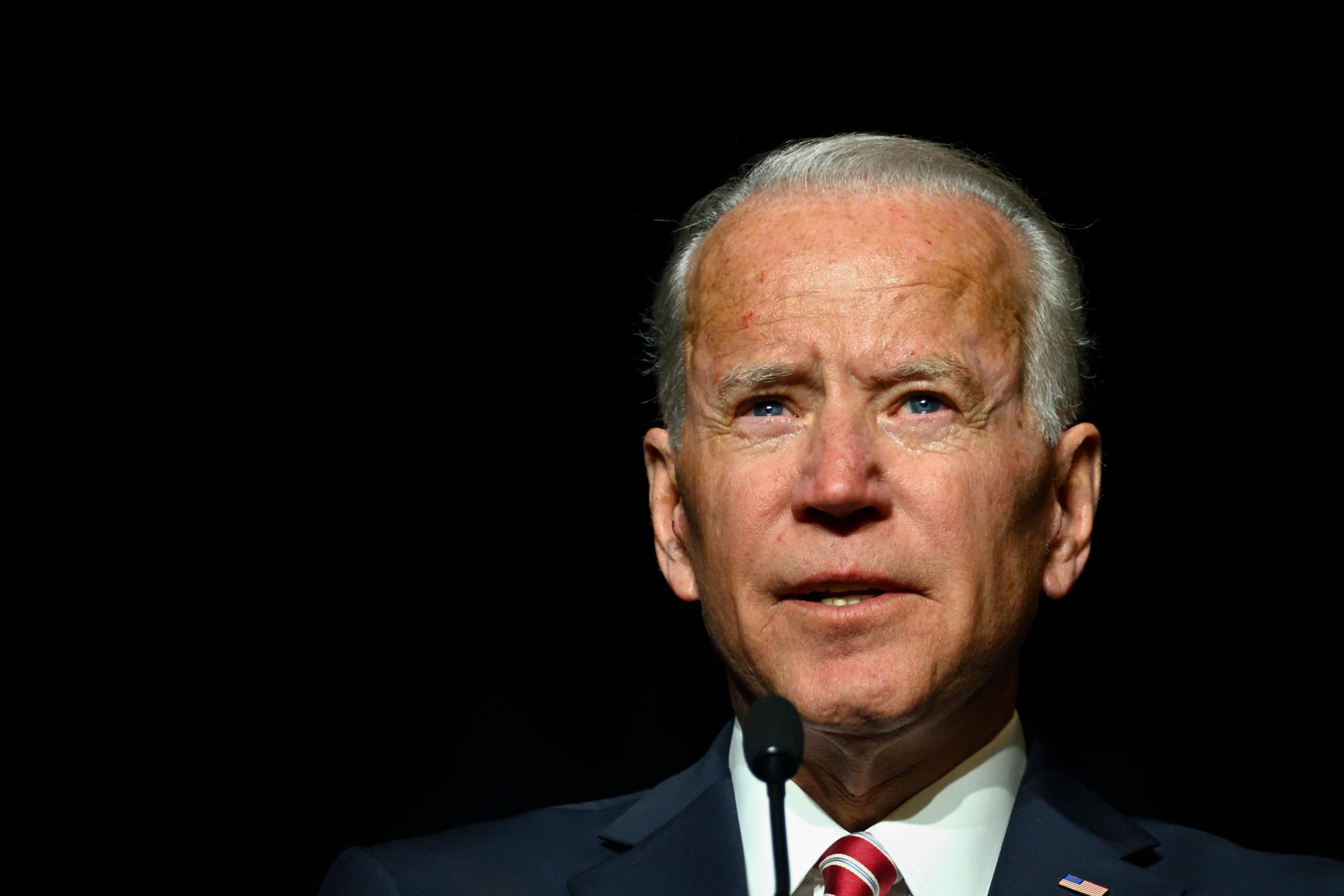
After months of speculation, former Vice President Joe Biden announced he was running for president on April 25. “We are in the battle for the soul of this nation,” he said during a four-minute-long announcement video. “If we give Donald Trump eight years in the White House he will forever and fundamentally alter the character of this nation, who we are, and I cannot stand by and watch that happen.”
Qualifications: The 76-year-old Democrat earned his bachelor’s degree from University of Delaware and his law degree from Syracuse. After graduating, he briefly worked as an attorney and then on a local county council before becoming one of the youngest senators in history at age 29. He won re-election six times, and served on the powerful Senate Foreign relations Committee before Barack Obama tapped him as his running mate in 2008.
Rationale: Despite a few gaffes, Biden was well-liked as a two-term Vice President. For many Democrats, the experienced politician is a reminder of what they perceived as a healthy Obama presidency.
Controversies: Before his April 2019 announcement, Biden had made two other unsuccessful bids for the White House. He’s been criticized for the way in which he physically interacts with female colleagues, often hugging and kissing them on the face.
Sen. Kamala Harris
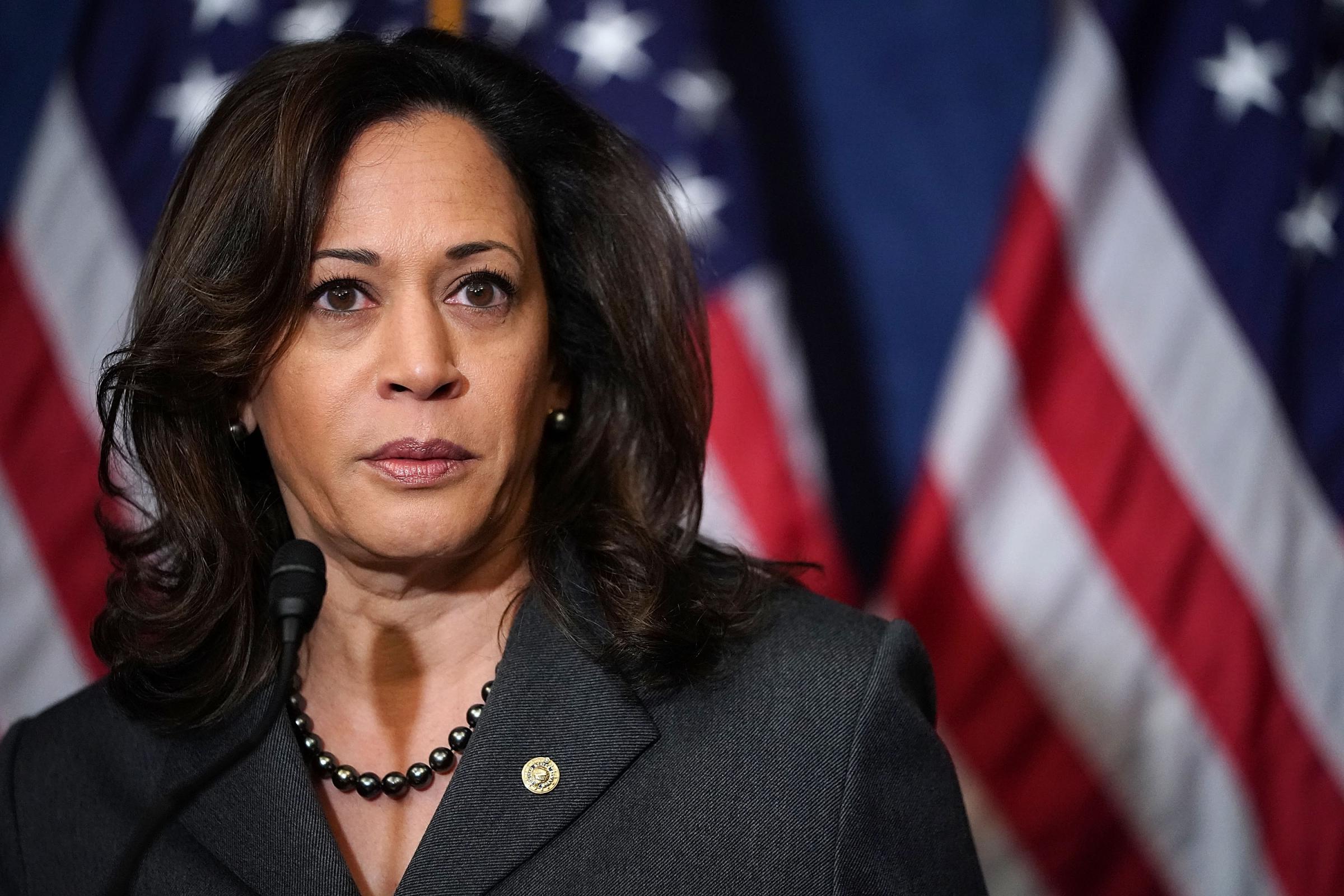
Sen. Kamala Harris announced she was running for president on Martin Luther King Jr. Day. “This is a moment in time that I feel a sense of responsibility to stand up and fight for the best of who we are,” she said during an appearance on “Good Morning America.”
Qualifications: Harris studied political science and economics at Howard University and subsequently earned a law degree from University of California Hastings College. She spent several years as a deputy district attorney and then as district attorney in San Francisco, before she was elected California’s attorney general in 2010. Harris easily won her Senate race against fellow Democrat Loretta Sanchez in 2016.
Rationale: Harris is a member of the powerful Senate Judiciary Committee, which held hearings ahead of then-Supreme Court nominee Brett Kavanaugh’s full Senate confirmation vote. There, she asked him tough questions in line with her history as a prosecutor: “Are you willing to ask the White House to authorize the FBI to investigate the claims against you?” she asked. “Are you willing to ask the White House to conduct an investigation by the FBI to get to whatever you believe the bottom of the allegations that have been levied against you?” she repeated, adding, “I don’t want to debate with you how they do their business, I’m just asking are you willing to ask the White House to conduct such an investigation?”
“Say yes or no and then we can move on,” she finally stated, though Kavanaugh deflected each time.
If elected, Harris would be the first female African-American and first Indian-American president, as well as the first woman to hold the highest title in the country. The Senator is off to a good start in the financial department — in her first day of campaigning, Harris raised approximately $1.5 million dollars.
Controversies: Harris is a successful politician today because of her past as a prosecutor, but that could do her disservice too. Some in the criminal justice community have expressed concerns that her actions as a California district attorney and attorney general disproportionately affected marginalized communities. Since announcing her candidacy, she’s publicly addressed the criticisms. “I was the attorney general of California for two terms and I had a host of clients that I was obligated to defend and represent,” she said. “I couldn’t fire my clients, and there were unfortunately situations that occurred where my clients took positions that were contrary to my beliefs.”
Sen. Elizabeth Warren
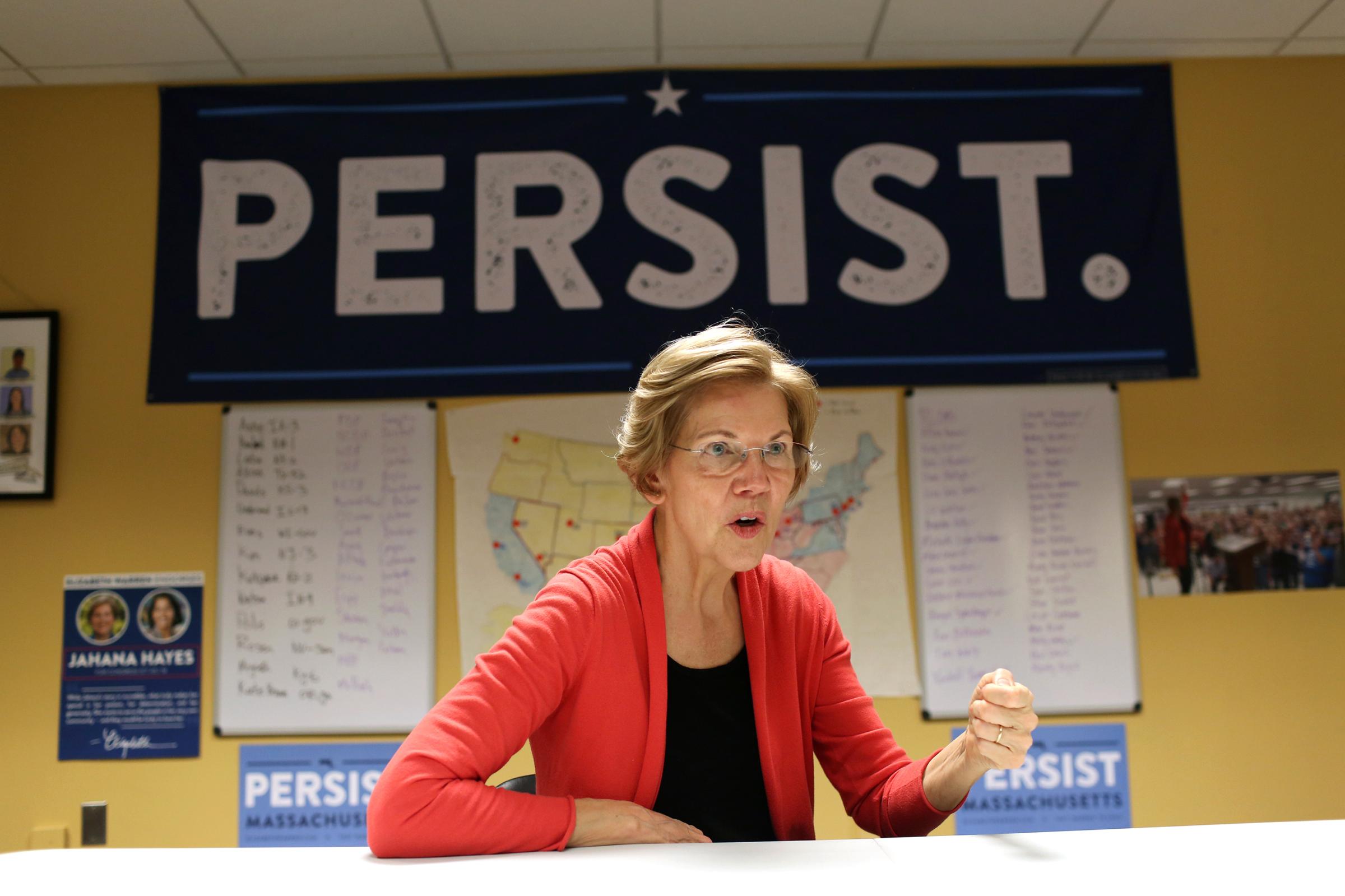
Sen. Elizabeth Warren officially announced her candidacy at a Feb. 9 rally in Lawrence, Massachusetts. She had previously announced an exploratory committee. “It won’t be enough to just undo the terrible acts of this administration,” she told the crowd gathered in her home state. “We can’t afford to just tinker around the edges — a tax credit here, a regulation there. Our fight is for big, structural change.”
Qualifications: Warren earned degrees from the University of Houston and Rutgers Law School. Before her political career, Warren taught law at several schools, including the University of Houston, the University of Pennsylvania and Harvard. In 2012, she successfully beat incumbent Sen. Scott Brown, who had replaced Sen. Ted Kennedy after his death. She’s served as a Senator since then, winning re-election in 2018. She’s also known for advocating for the creation of the Consumer Financial Protection Bureau, which enforces rules for financial institutions, and for her progressive stances issues like student loan reform and corporate capitalism.
Rationale: Warren thinks she can help rebuild the middle class. In the video announcing the foundation of her exploratory committee, she discusses her childhood in Oklahoma, and how her mom had to find a minimum wage job after her dad suffered a heart attack. After he recovered, he eventually became a janitor. Her father “raised a daughter who got to be a public school teacher, a law professor and a senator. We got a real opportunity to build something,” Warren says in the video. “Working families today face a lot tougher path than my family did.”
Controversies: Warren released the results of a DNA test in attempt to debunk claims that she was not part Native American. She had faced pushback on the topic during previous election cycles after it was discovered she was listed as a minority in staff directories when she taught law. The report confirmed Native American genes were in her pedigree, but that the relative could have been from six to 10 generations ago. Some have criticized the connection as too distant to be of note.
Sen. Cory Booker
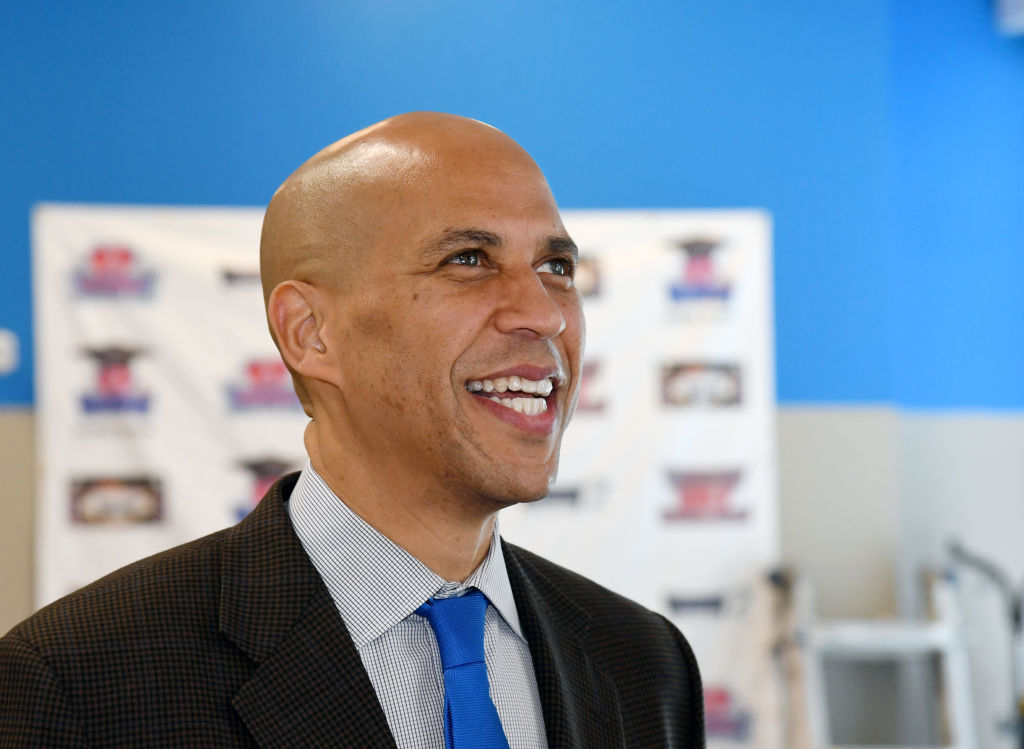
Sen. Cory Booker announced he was running for president in a video message posted to his Twitter account on Feb. 1. “We are better when we help each other,” he says in the footage. “I believe that we can build a country where no one is forgotten, no one is left behind; where parents can put food on the table; where there are good paying jobs with good benefits in every neighborhood; where our criminal justice system keeps us safe, instead of shuffling more children into cages and coffins; where we see the faces of our leaders on television and feel pride, not shame.”
Qualifications: Booker, 49, received his bachelor’s degree from Stanford and his law degree from Yale. In between, he was also awarded a prestigious Rhodes Scholarship to study at Oxford. After graduating from law school, he moved to Newark, New Jersey, where he started a legal nonprofit for low-income families. He was first elected to city council at age 29, and went on to become mayor in 2006. In 2013, he won a special election to the U.S. Senate, and the following year was elected to a full six-year term. As the state’s junior Senator, Booker has landed coveted positions on the Senate Judiciary and Foreign Relations committees.
Rationale: Booker routinely sponsors bills that aim to alleviate poverty, expand affordable access to healthcare and raise the minimum wage. Raised by two civil rights activists, Booker is a staunch defender of equality — especially among African-Americans, Latinos and women. “Generations of heroic Americans have made our nation more inclusive, more expansive, and more just,” he said while addressing the Democratic National Convention in 2016. “Our nation wasn’t founded because we all look alike or prayed alike or descended from the same family tree. But our founders, in their genius, in this, the oldest constitutional democracy on the planet Earth, they put forth the idea that all are created equal, that we have inalienable rights.”
Like Sen. Kamala Harris, Booker garnered broader name recognition for questions he asked during then-Supreme Court Nominee Brett Kavanaugh’s confirmation hearings about the sexual assault allegations lodged against him by Christine Blasey Ford. “So sir, let’s just be clear,” Booker started. “You have problems with the senators that are up here and how we conducted it; but, you’re not saying in any way that she is a political pawn, a political operative. You have sympathy for her. She is talking about a sexual assault. Is that correct?” Moments later, Booker doubled down: “Do you wish that she never came forward?” To which Kavanaugh responded, “Senator, I did not do this.”
If elected, Booker could be the first unmarried person elected president since the 1800s. However, he recently confirmed he has a girlfriend.
Controversies: While at Stanford, Booker wrote a column in his college newspaper describing an incident with a young woman that took place when he was 15. “After having my hand pushed away once, I reached my ‘mark,’” he wrote. “The next week in school she told me that she was drunk that night and didn’t really know what she was doing.” Booker, then a peer counselor, wrote that if he was going to advocate against sexual misconduct, he had to own up to his own mistakes. “When I hesitated in writing this column, I realized I was basking in hypocrisy,” it reads. “So instead I chose to write and risk.”
Sen. Bernie Sanders
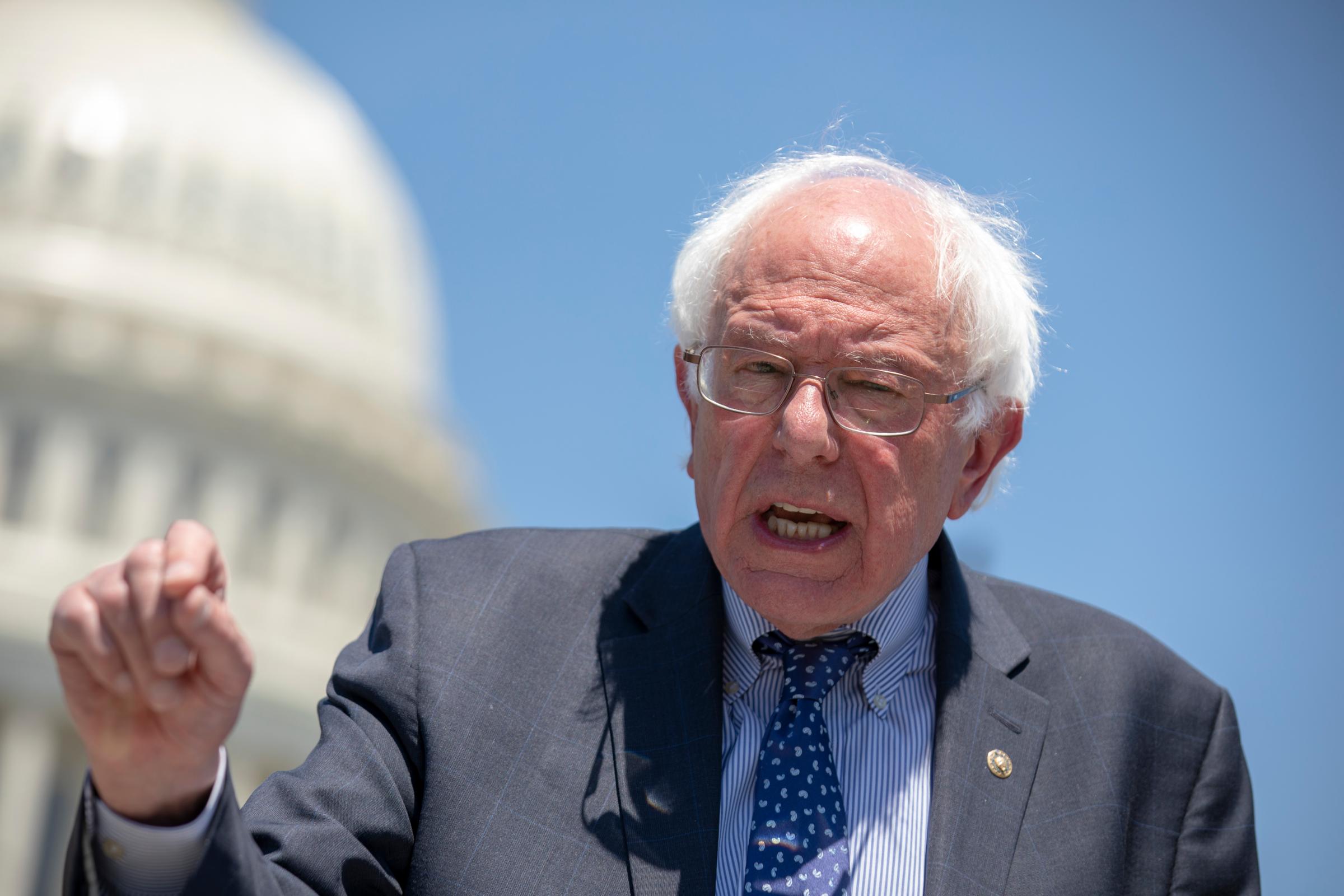
After a failed run for the Democratic nomination in 2016, Sen. Bernie Sanders is trying again. On Feb. 19, he announced his candidacy. “Three years ago, during our 2016 campaign, when we brought forth our progressive agenda we were told that our ideas were ‘radical’ and ‘extreme,’” Sanders wrote in an email to supporters, citing healthcare, education and income inequality. “Three years have come and gone. And, as result of millions of Americans standing up and fighting back, all of these policies and more are now supported by a majority of Americans.”
Qualifications: Sanders graduated from University of Chicago with a bachelor’s degree in political science. He moved to Vermont a few years after graduation, where, after several unsuccessful gubernatorial and Senate campaigns, he was elected Burlington’s mayor for four consecutive terms. In 1990, he was elected to the House, making him the first self-identifying Independent elected to the chamber in decades. When a Senate seat opened up in 2005, Sanders won the election with the backing of several prominent Democrats, including Sen. Chuck Schumer. He’s been re-elected twice.
Rationale: Sanders has long advocated for a $15 federal minimum wage, universal healthcare and campaign finance reform. He’s been involved in social protests since college and has the support of many blue collar workers, especially in the Midwest. In his 2016 run, Sanders claimed New Hampshire’s primary nomination by more than 20 points and narrowly lost to former Secretary of State Hillary Clinton in Iowa’s caucuses.
Controversies: Some have argued that Sanders, an independent, uses the Democratic Party only when it’s convenient for him. “I would love to hear Sanders’s opinion on how the Democratic Party can rebound and rebuild, but it has to be preceded by him actually joining the party, not merely using it as a vessel for his run for president,” wrote former Obama and Hillary Clinton campaign member, Michael Starr Hopkins, in an opinion piece for the Hill. Others have lambasted Sanders for his age, requesting a new generation of politicians take the helm. Sanders, currently 77, would be the oldest candidate to enter the ring by several years. “Democrats would be better off with a young candidate,” political strategist Brad Bannon told the Hill. To those concerns, Sanders says: “I’m very blessed with my health.”
Pete Buttigieg
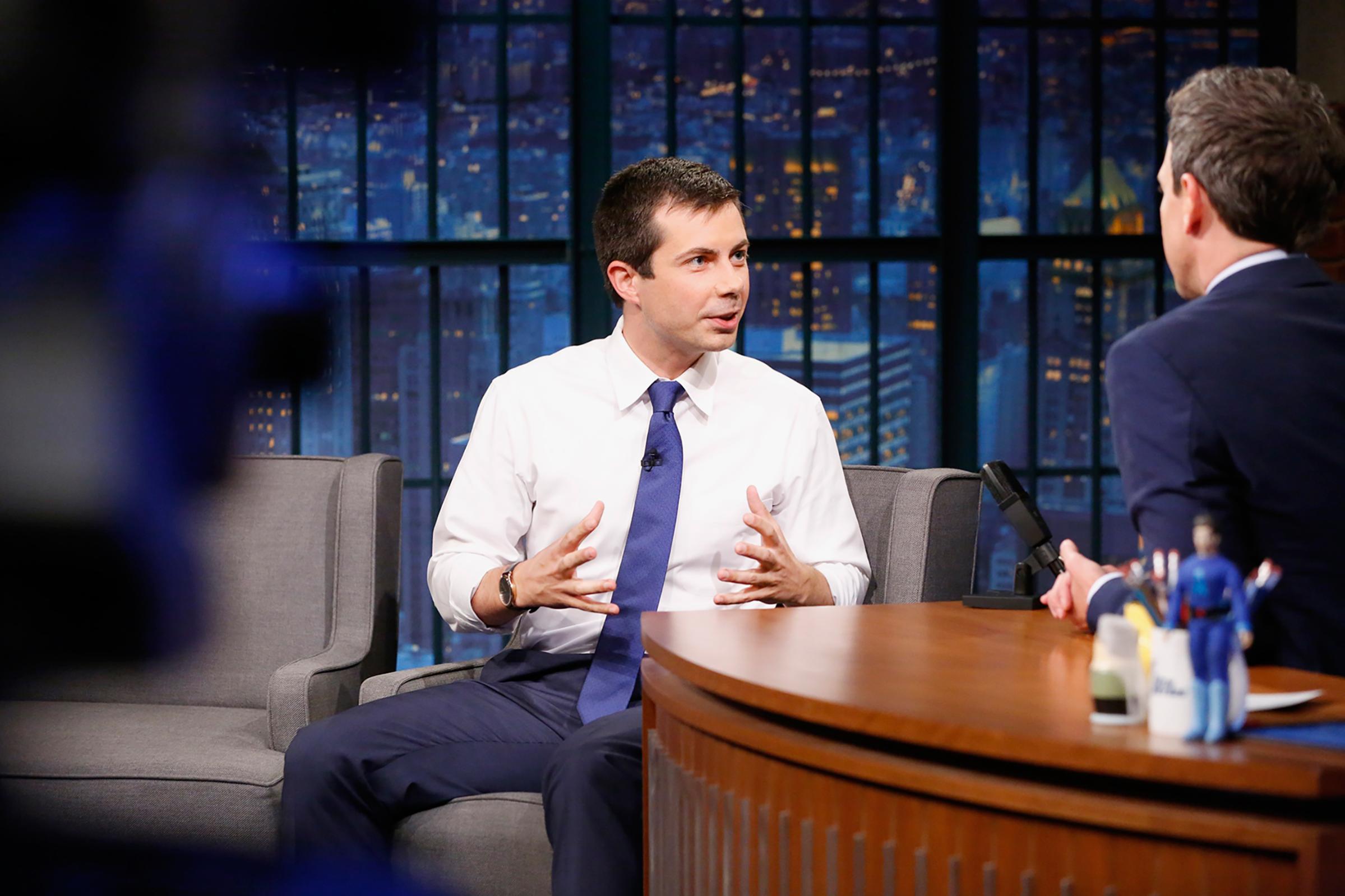
Pete Buttigieg, the popular mayor of South Bend, Indiana, announced he was launching a presidential exploratory committee on Jan. 23. “The show in Washington right now is exhausting. The corruption, the fighting, the lying, the crisis. It’s got to end,” he said in a campaign video posted to social media. “Right now, our country needs a fresh start.” He made his candidacy official in mid-April after doing well in early polling data.
Qualifications: Buttigieg, pronounced “boot-edge-edge,” graduated from Harvard and went on to become a Rhodes Scholar at Oxford, where he studied philosophy, politics and economics. At age 29, Buttigieg became the youngest mayor of a U.S. city with a population larger than 100,000. Buttigieg is also a Naval Reserve veteran, having served for seven months in Afghanistan in 2014.
Rationale: In his first mayoral election, Buttigieg won nearly three-fourths of the votes in South Bend. In his bid for re-election, he achieved 80% against his Republican challenger. Before his mayoral campaigns, Buttigieg did economic and environmental consulting work for McKinsey & Company, according to the Center for Public Integrity. “Right now, our country needs a fresh start,” Buttigieg said in his campaign announcement video. If elected, he’d be the first openly gay president and, currently 37 years old, he’d be the first millennial president.
Controversies: Buttigieg is educated, accomplished and well-liked in his community, but he has had some unsuccessful endeavors. In 2010, he ran for Indiana state treasurer and lost. In 2017, he made an unsuccessful bid for chair of the Democratic National Committee, eventually dropping out after indicating he didn’t have enough votes. Some may argue he doesn’t have enough political experience compared to the Senators and other prominent Democrats expected to run in 2020.
Former Rep. Beto O’Rourke
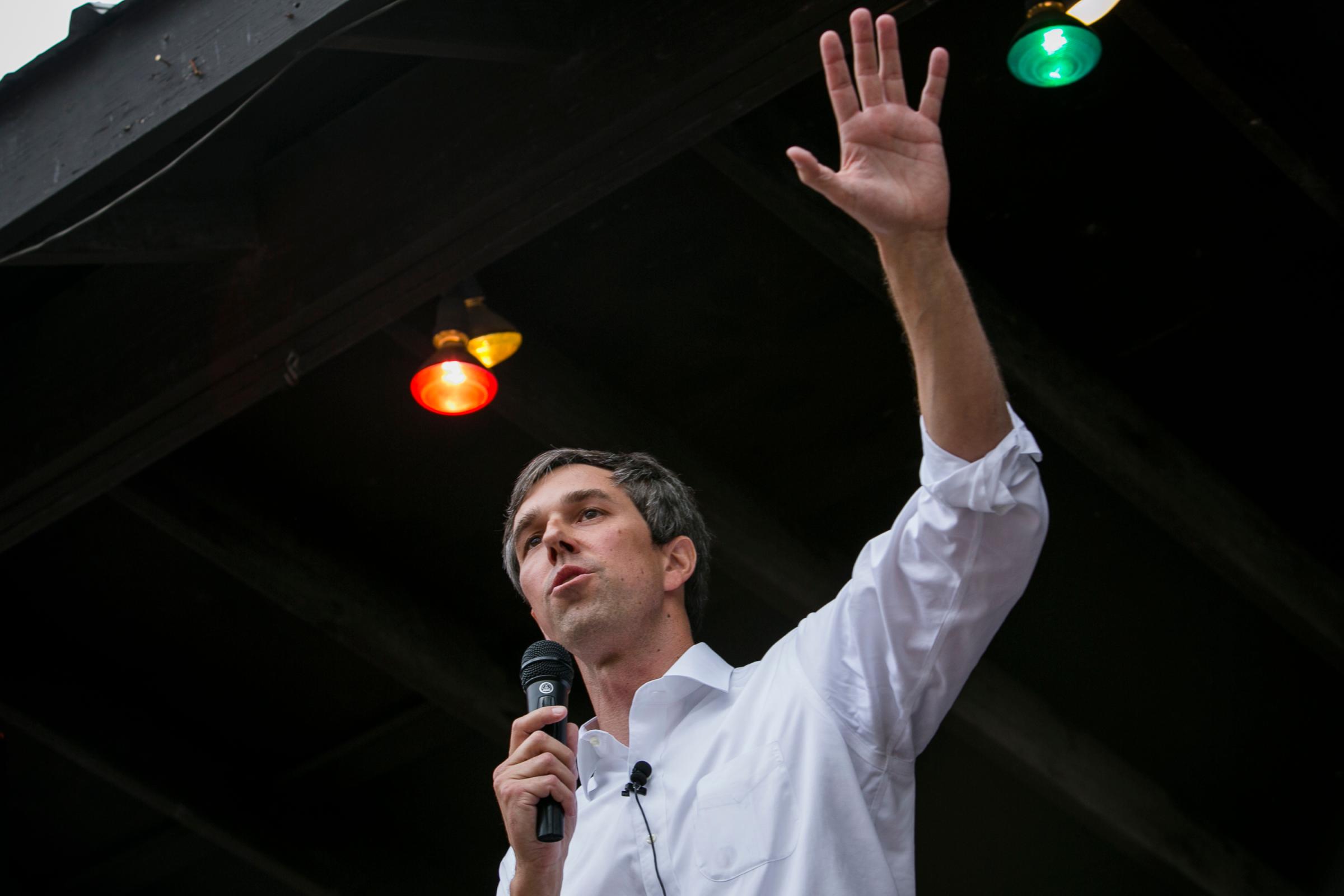
Beto O’Rourke announced he was running for president in a video posted online on March 14. “This is going to be a positive campaign that seeks to bring out the very best from every single one of us,” he said, shown in the video sitting beside his wife Amy, “that seeks to unite a very divided country.”
Qualifications: The 46-year-old and father of three served three terms in the House of Representatives after defeating eight-term incumbent Silvestre Reyes in the 2012 Democratic primary. Before the upset, O’Rourke was an El Paso city councilman, member of a punk band and the founder of a small web and software company. He graduated from Columbia University with a bachelor’s degree in English literature.
Rationale: Though he’s younger and less seasoned than some of his 2020 opponents, O’Rourke — not all that dissimilar from former President Barack Obama — garnered national name recognition relatively quickly. In the 2018 midterm election season, O’Rourke raised an eye-popping $80 million. His Republican opponent, Republican Sen. Ted Cruz, raised just under half of that. O’Rourke ultimately lost by about 3% to Cruz, but that is no small feat considering the state’s conservativeness. Texas has not elected a Democrat to a statewide position since 1994. During his Senate race, O’Rourke campaigned on increasing background checks for gun sales, expanding Medicaid access and instituting congressional term limits.
Controversies: O’Rourke was arrested for crashing a vehicle while intoxicated in 1998, though the charges were dismissed after he completed a court-ordered educational program. In an August 2018 op-ed, he apologized for the indiscretion, and said it was a “serious mistake for which there is no excuse.” He’s also come under fire for how he’s spent his time since losing to Cruz. He embarked on a road trip, during which he complained of feeling like he was “in and out of a funk.” Some political commentators noted female mothers and candidates would not get the same empathy for leaving a spouse and children behind to take that kind of trip.
Sen. Amy Klobuchar
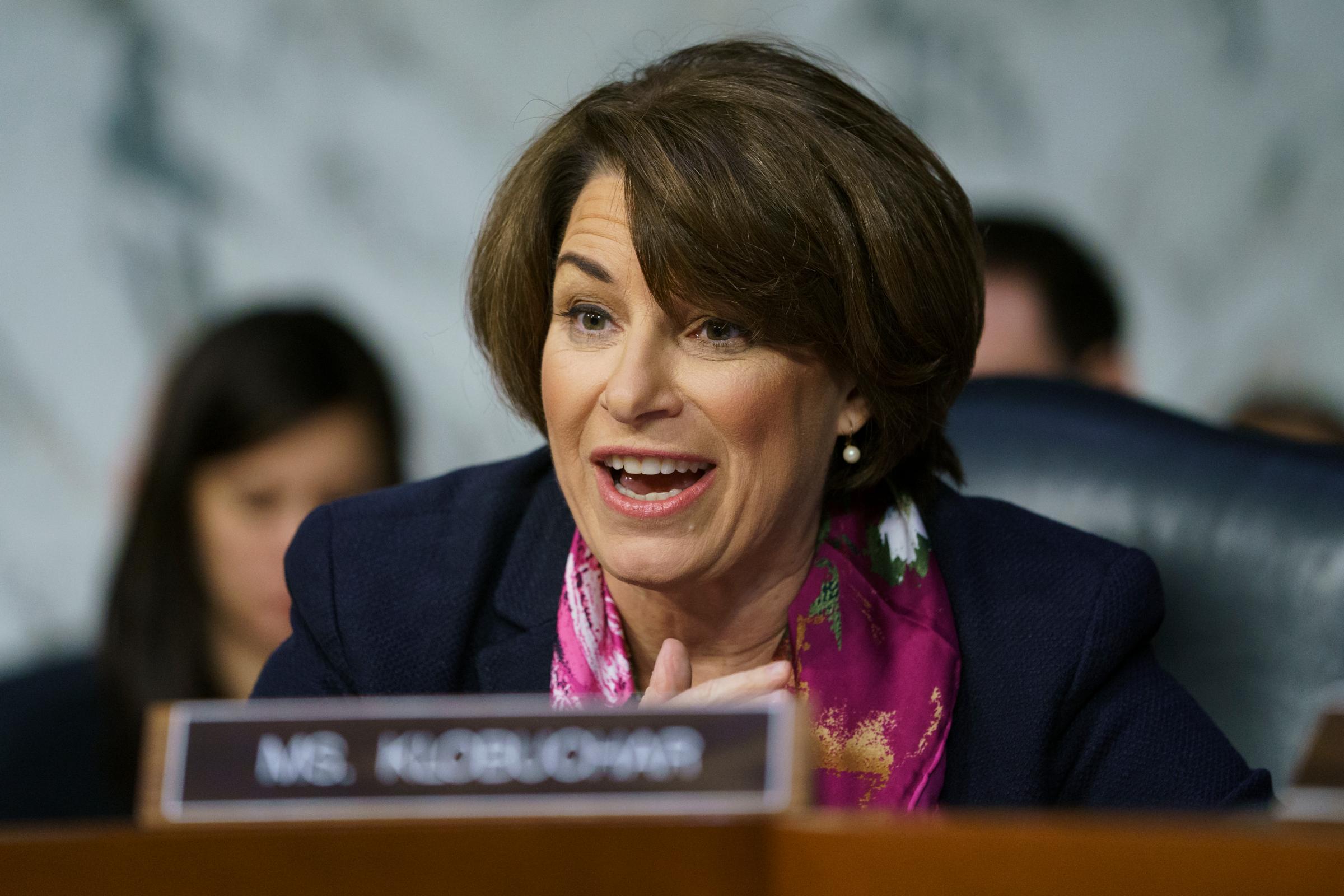
Sen. Amy Klobuchar announced she was running for president at a rally in her home state of Minnesota on Feb. 10. “We are all tired of the shutdowns and the showdowns, of the gridlock and the grandstanding,” she said, less than a month after the longest government shutdown in history ended at an impasse. “Our nation must be governed not by chaos, but by opportunity.”
Qualifications: Klobuchar studied political science at Yale and law at the University of Chicago. After law school, she worked as a corporate lawyer before being elected a county attorney where she focused on prosecuting violent criminals. In 2006, she became the first woman elected to represent Minnesota in the U.S. Senate. She has since won re-election twice.
Rationale: Like several of the Senators she’s vying against for the Democratic nomination, Klobuchar is a member of the powerful Senate Judiciary committee that oversaw the confirmation hearings of Brett Kavanaugh. As the daughter of a man who struggled with alcohol addiction, asking the Supreme Court nominee about his alcohol use hit particularly close to home.
“Drinking is one thing, but the concern is about truthfulness, and in your written testimony, you said sometimes you had too many drinks,” she said. “You’re saying there’s never been a case where you drank so much that you didn’t remember what happened the night before, or part of what happened?”
Kavanaugh quipped back: “You’re asking about, you know, blackout,” he said. “I don’t know. Have you?”
In addition to her committee memberships, Klobuchar is also known for her popularity in Minnesota. She beat her last Republican challenger by more than 20 points. According to Morning Consult, she’s also the third most popular Senator with a 60% approval rating.
Controversies: Klobuchar has one of the highest staff turnover ratings among her Senate colleagues. According to recent HuffPost and BuzzFeed articles, some former staffers have accused her of being difficult to work with. Other employees, quoted in the HuffPost article, said the Senator had high expectations that pushed them to be better, and that the allegations were symptomatic of sexism. An unnamed campaign spokesperson told both publications that Klobuchar values the people she works with: “Senator Klobuchar loves her staff ― they are the reason she has gotten to where she is today.”
Sen. Kirsten Gillibrand
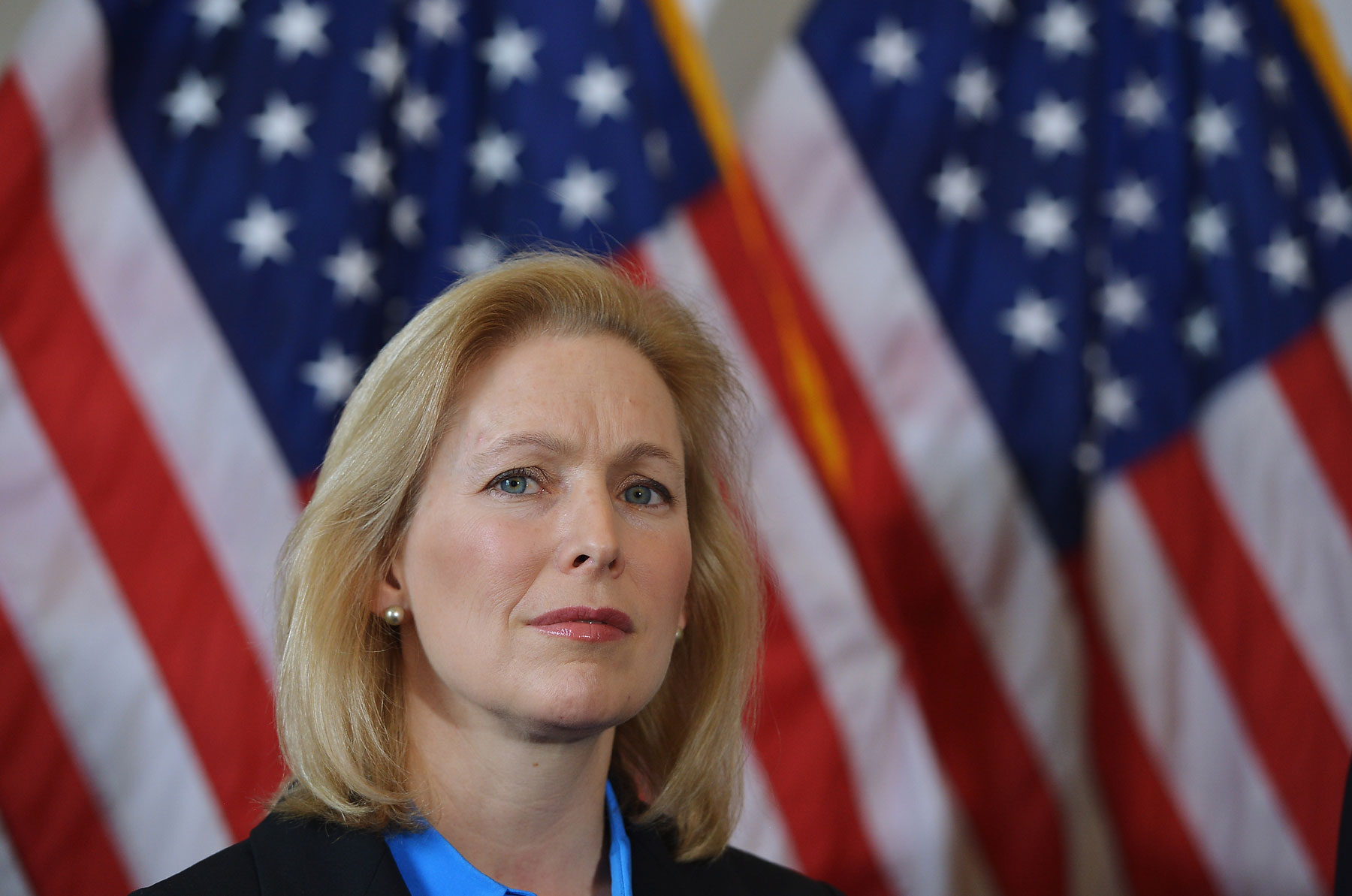
Sen. Kirsten Gillibrand announced she was officially seeking the Democratic nomination in March after initially announcing an exploratory committee in January.
Qualifications: Gillibrand attended undergrad at Dartmouth and law school at UCLA. Before running for public office, Gillibrand clerked for the Second Circuit Court of Appeals and practiced private law in New York City. She served in the House of Representatives beginning in 2007, and was appointed to the Senate in 2009 after Hillary Clinton vacated the seat to become Secretary of State.
Rationale: Gillibrand cited institutional racism, greed and corruption in Washington as barriers the future Democratic nominee will have to overcome in order to accomplish legislation that bolsters hard-working Americans. “I believe that anybody who wants to work hard enough should be able to get whatever job training they need to earn their way into the middle class,” she said during her announcement. Her platform might include postal banking — legislation she sponsored in 2018 that would require U.S. Post Offices to offer basic financial services, like checking accounts. “I’m going to run for president of the United States, because as a young mom, I’m going to fight for other people’s kids as hard as I would fight for my own,” the New York Senator said on the show.
Controversies: Gillibrand has become more progressive over the last decade. When she was appointed to fill Hillary Clinton’s vacant seat, she opposed any sort of amnesty for undocumented immigrants, according to the New York Times. Gillibrand also used to have an “A” rating from the NRA, though the pro-gun rights group has since downgraded it to an “F.” These ideological shifts could prove problematic to progressive voters in primaries that are likely to be heated.
Sen. Michael Bennet
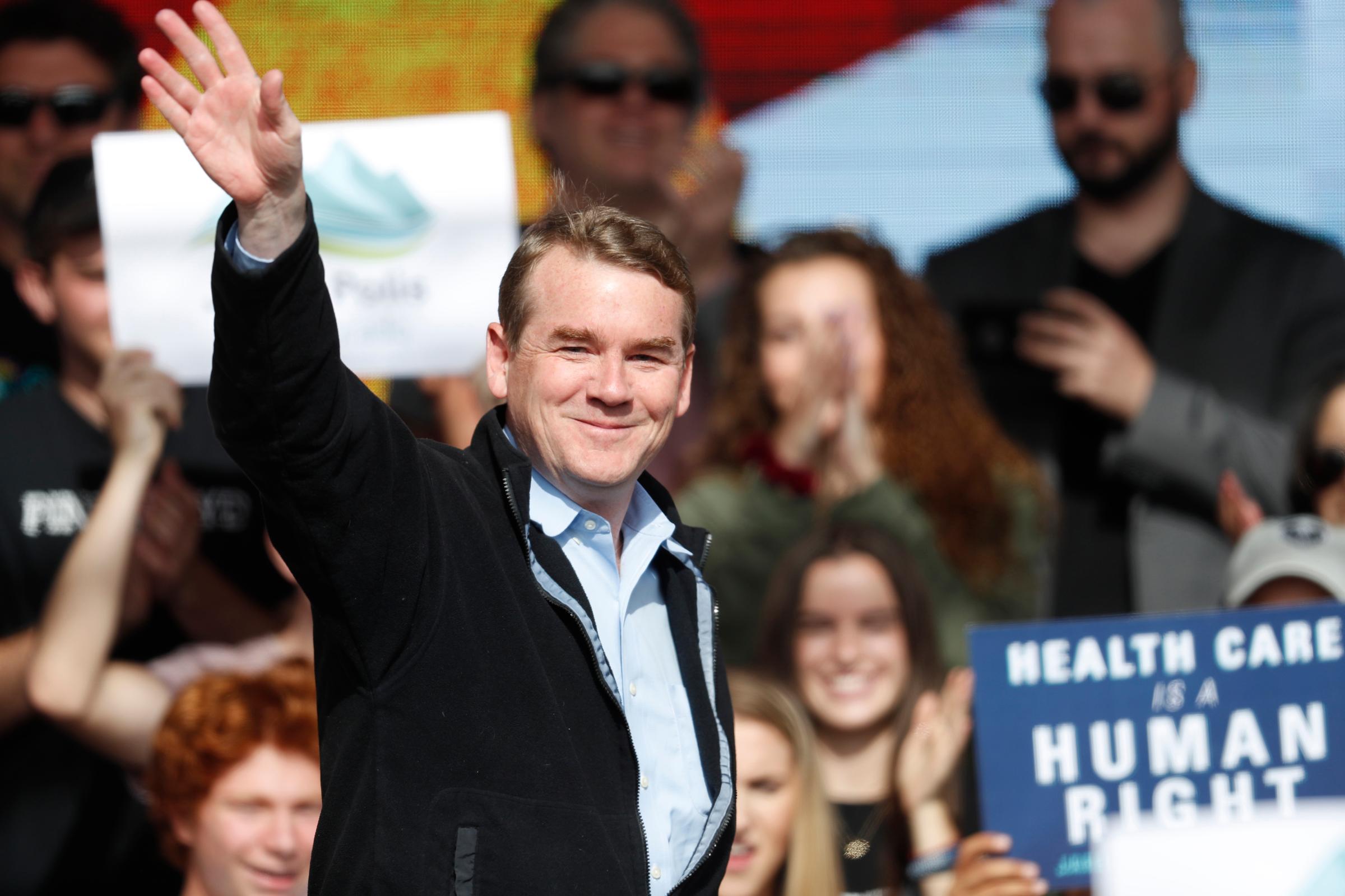
Sen. Michael Bennet, a Colorado Democrat, announced he was running for president during an interview on CBS’ “This Morning” on May 2. “I have a tendency to tell the truth to the people I represent in Colorado and I want a chance to do that with the American people,” he said.
Qualifications: The 54-year-old earned a bachelor’s degree from Wesleyan University and a law degree from Yale. He served as a special assistant to the U.S. attorney for Connecticut and a director of an investment company before fellow 2020 candidate and then-Denver Mayor John Hickenlooper made him his chief of staff in 2003. Later, he became superintendent of the Denver Public Schools. When Colorado Sen. Ken Salazar was tapped by Obama to become Secretary of the Interior in 2009, Bennet was appointed to fill his Senate seat. He’s since been re-elected twice: first in 2010 and then in 2016.
Rationale: A former superintendent who helped improve district standards, Bennet is known for education reform. He also gained recent traction for a fiery speech during the most recent government shutdown in which he berated fellow Sen. Ted Cruz over blaming Democrats for the impasse. Cruz had played a role in the 2013 shutdown over the Affordable Care Act — which, at the time, hindered Colorado from getting relief assistance after disastrous floods. “These crocodile tears that the senator from Texas is crying for the first responders are too hard for me to take,” Bennet said.
Controversies: Bennet announced he was undergoing treatment for prostate cancer in early April. Later that month, his staff said he had a successful surgery and would require no further treatment. Bennet is now somewhat late to the game in what is turning out to be the most crowded Democratic primary race in modern history. He’ll be competing against better-known candidates who are now millions of dollars ahead of him in fundraising figures.
Former Colorado Gov. John Hickenlooper
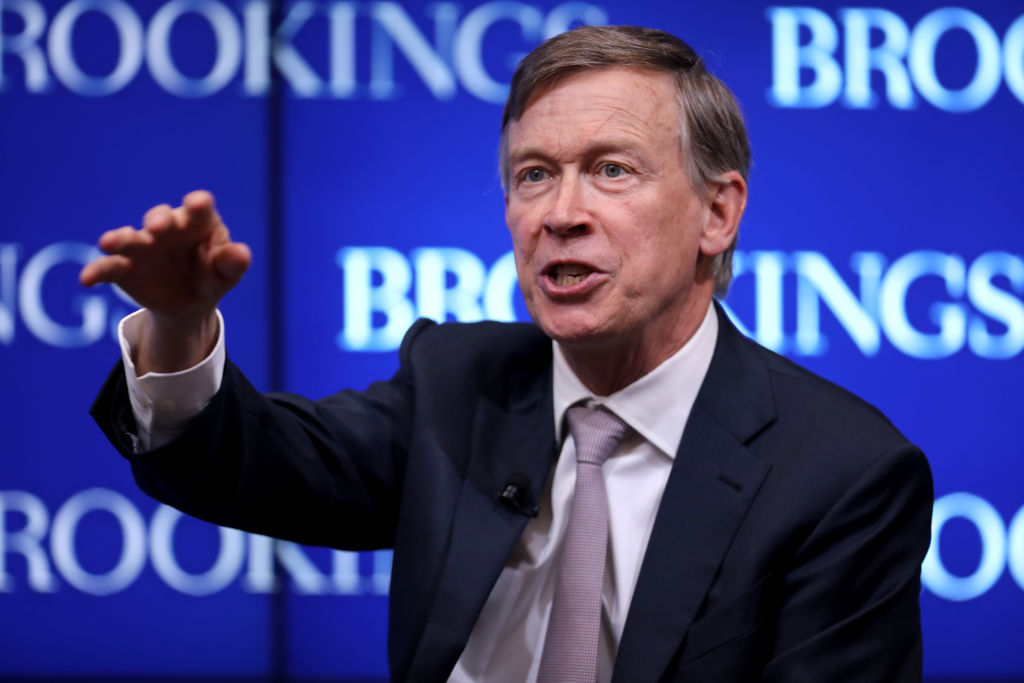
John Hickenlooper, former Governor of Colorado, announced he was running for president via video announcement and a “Good Morning America” appearance on March 4. “Ultimately I’m running for president because I believe that not only can I beat Donald Trump, but that I am the person that can bring people together on the other side and actually get stuff done,” he said. “The division is keeping us from addressing big issues like climate change and the soaring costs of healthcare.”
Qualifications: Hickenlooper earned both his undergraduate and graduate degrees at Wesleyan University, where he studied English and geology, respectively. He worked as a geologist until he was laid off in the early 1980s, and then went on to found his own brewpub, called Wynkoop Brewing Company. He served two terms as Denver’s mayor, beginning in 2003, and then was elected Colorado’s governor in 2010. His second and final gubernatorial term ended in January.
Rationale: The 67-year-old Democrat is widely perceived as a political moderate known for getting substantive legislative codified. After a gunman shot and killed 12 and injured 70 more at a “Dark Knight Rises” movie showing in Aurora, Colorado in 2012, Hickenlooper signed bills that expanded background checks and created new limits on ammunition clips, despite over 30% of Coloradans owning guns.” When the state passed a ballot measure to legalize recreational marijuana use in 2012, Hickenlooper said it took him time to warm up to the idea. “I was against it. Almost everybody I know was against it. It’s no fun to be in conflict with federal law,” he told TIME in November. “[But] most of the worst fears that we had in legalizing recreational marijuana haven’t come to pass,” he continued. “States are the laboratories of democracy, and I think this is one of the great social experiments.” These policy positions could bode well with younger voters, who are more supportive of gun control and marijuana legalization.
Controversies: Hickenlooper was accused of taking private jets owned by wealthy benefactors and not disclosing the gifts. The 189-page complaint, filed by a former Colorado politician, alleges Hickenlooper took almost 100 of these flights since September 2011, the Denver Post reported in October. A Colorado political strategist told TIME in November that the claim lacked legitimacy. “From what I have seen, the word scandal does not apply here,” Craig Hughes said.
Gov. Jay Inslee
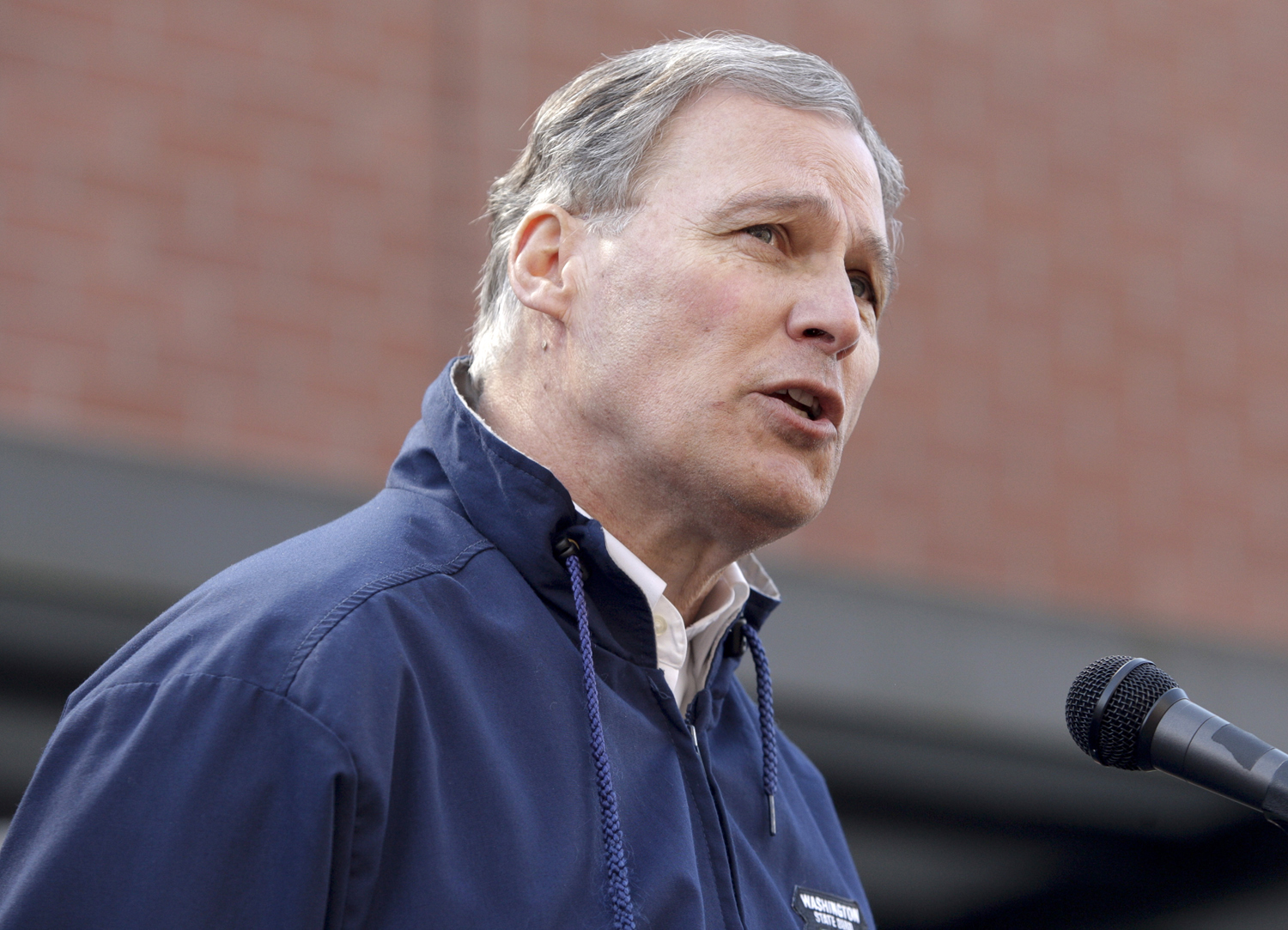
Washington State Gov. Jay Inslee announced he was running for president via video message on March 1. He’s already established combating climate change as the theme of his campaign: “I’m Jay Inslee and I’m running for president because I am the only candidate who will make defeating climate change our nation’s number one priority,” Inslee says in the video.
Qualifications: Inslee was first elected governor in 2012, and then re-elected in 2016. Before that, he served in the U.S. House of Representatives for more than a decade. While in the House, climate change was also a pressing issue for him — he served on the House Committee on Energy and Commerce. Inslee studied economics at the University of Washington and law at Willamette University.
Rationale: Inslee believes climate change is one of the most pressing issues facing the United States. “We’re the first generation to feel the sting of climate change. And we’re the last that can do something about it,” Inslee says in his launch video. “We can do this.” During his tenure as governor, he’s made his state one of the friendliest to electric vehicles, reduced Washington’s reliance on fossil fuels and co-founded the U.S. Climate Alliance in efforts to uphold the goals of the Paris Agreement. He also helped Washington raise its minimum wage and pass a statewide paid family leave law.
Controversies: Inslee is one of the lesser known Democrats vying for the 2020 Democratic nomination. He’ll also face pushback from climate deniers, and perhaps those who oppose drastic climate change solutions, like the statewide carbon tax he unsuccessfully pushed for in the 2018 midterms.
Rep. Tulsi Gabbard
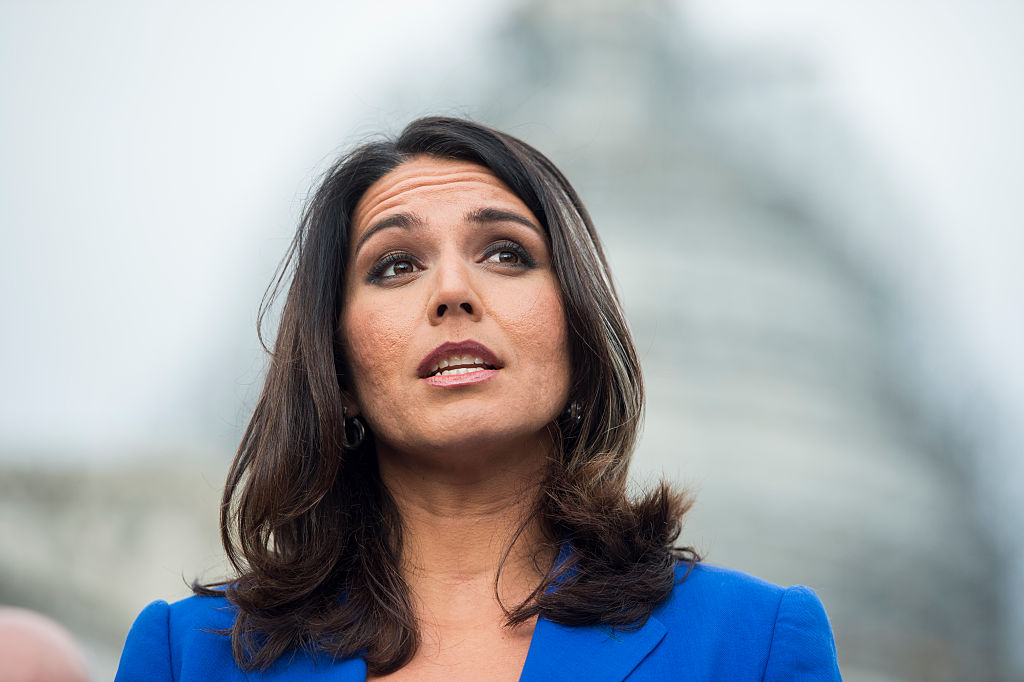
Rep. Tulsi Gabbard broke down barriers when she became the first Samoan-American and first Hindu elected to Congress. Before her election in 2012, she served in the Hawaiian Army National Guard — first in Iraq and then Kuwait. Before that, Gabbard became the youngest woman ever elected in the state, when she won a Hawaii House seat at age 21. On Jan. 24, Gabbard officially announced her bid to become America’s first female president with a campaign video.
Qualifications: After being homeschooled for most of her life, Gabbard studied business at Hawaii Pacific University and graduated in 2009. Gabbard does not have an advanced degree, but does have experience serving on Honolulu’s city council, in Hawaii’s state legislature, in the Army National Guard and as a congresswoman.
Rationale: Gabbard has recently visited crucial states like Iowa and New Hampshire. She also wrote a book slated to be published this spring. Unlike Trump, Gabbard has wartime experience. She actually left Hawaii’s House in order to serve in Iraq. “I stepped down from the legislature where I served, and headed to a war zone,” she said at the 2012 Democratic National Convention. “As a combat veteran, I know the costs of war.”
Controversies: Gabbard is only 37, and has limited congressional experience in comparison to other Democrats expected to enter the ring. Other than her age, she’s also faced criticism for helping her father’s anti-gay organization, the Alliance for Traditional Marriage, around the early 2000s. The organization ran a successful campaign to give the state legislature power to “reserve marriage to opposite-sex couples”. There is evidence the group also supported conversion therapy, according to web archives. If elected, she’d be the youngest president in America’s history.
Julián Castro
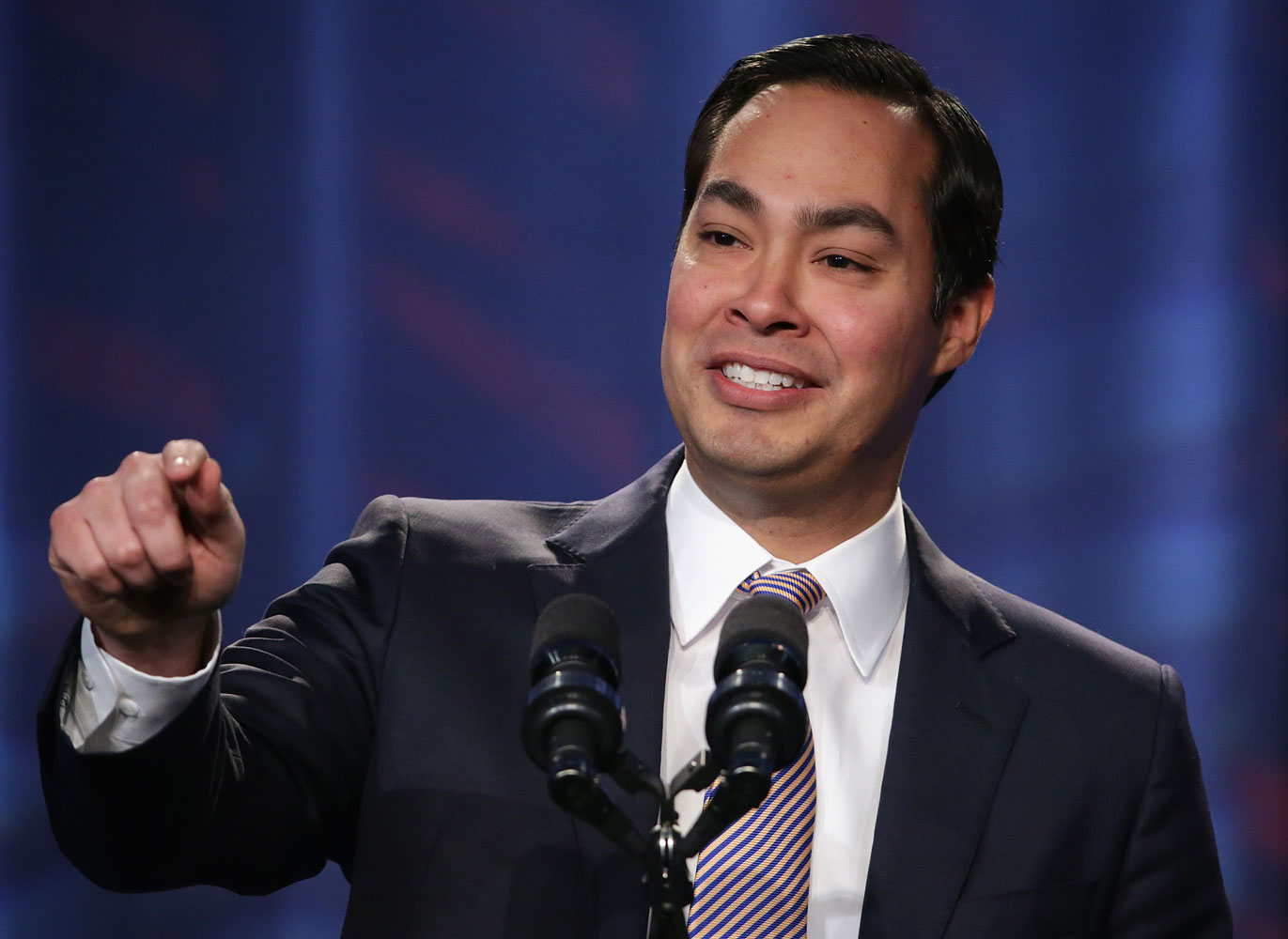
You might know Julián Castro’s name from his previous roles as San Antonio’s mayor, or his more recent stint as former President Barack Obama’s Housing and Urban Development Secretary.
Qualifications: Castro graduated from Stanford University and Harvard Law School. Like Gabbard, he’s known for starting in politics at a young age. He became San Antonio’s youngest councilman in 2001 when he was 26. After one unsuccessful attempt, Castro was elected as San Antonio’s Mayor in 2009. In 2012, he became the first Latino to deliver the Democratic National Committee’s keynote address. He was named HUD Secretary in 2014 and was reportedly considered as a running mate by 2016 Democratic Nominee Hillary Clinton. Under Obama, Castro helped launch the ConnectHome initiative, which expanded affordable broadband internet access to public housing recipients in 27 cities.
Rationale: The native Texan has said he thinks he can be the “antidote to Trump” on hot-button issues like immigration. While speaking to a crowd of supporters in San Antonio, less than 200 miles from the southern border, Castro said the crisis America faces is one of leadership. “Donald Trump has failed to uphold the values of our great nation,” he said. “We have to have border security … but there’s a smart, and a humane way to do it. And there is no way in hell that caging children is keeping us safe.”
Controversies: The Office of the Special Counsel found that Castro violated the Hatch Act when he appeared to advocate for and against presidential candidates during an interview leading up to the 2016 election. “Now, taking off my HUD hat for a second and just speaking individually, it is very clear that Hillary Clinton is the most experienced, thoughtful, and prepared candidate for president that we have this year,” he had told Yahoo News anchor Katie Couric during the interview that took place at HUD’s broadcast studio. Castro later apologized for the indiscretion.
Rep. Tim Ryan
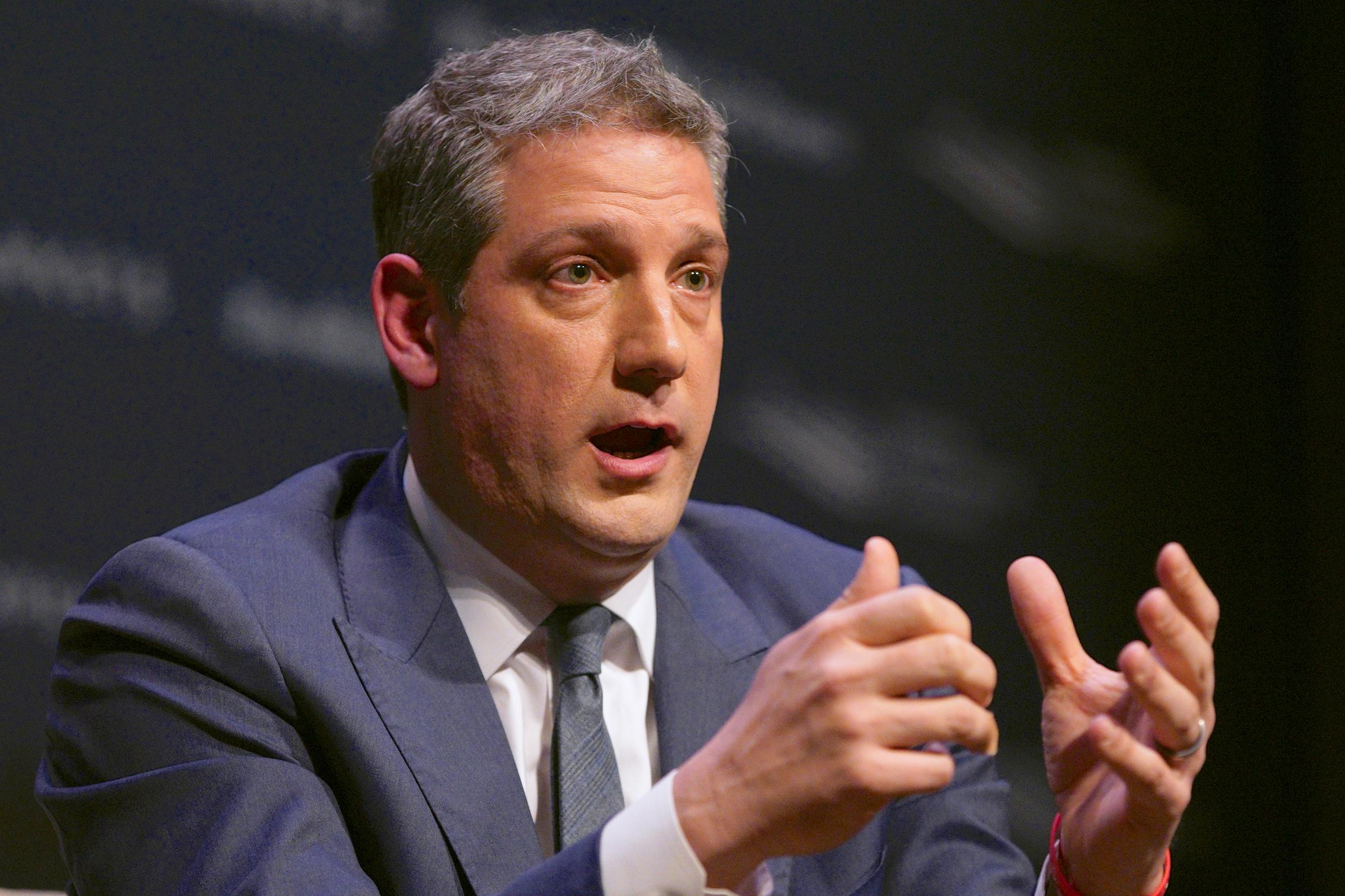
Rep. Tim Ryan announced he was running for president on April 4. “As a Congressman from Youngstown, Ohio for almost 20 years, I’ve watched the American Dream slip through the fingers of many Americans,” Ryan said on his campaign website. “That’s why I am running for president. It’s time to do something.”
Qualifications: A 45-year-old Ohio Democrat, Ryan is currently serving his eighth term in the House of Representatives. Before he was elected to Congress, he previously served in the Ohio Senate. He is a member of the House Appropriations Committee, which regulates federal spending. Ryan’s undergraduate degree is from Bowling Green State University, and he attended law school at University of New Hampshire.
Rationale: Ryan thinks he can win over white, working class voters who went for Trump in 2016. “I am a progressive who knows how to talk to working class people, and I know how to get elected in working class districts because at the end of the day, the progressive agenda is what is best for working families,” he said on a television appearance the day he announced his candidacy.
Controversies: Ryan has flip-flopped on the issue of abortion, previously being against the procedure due to his Catholicism. In 2015, he wrote an op-ed announcing he had changed his mind, and that he now believes “we must trust women and families — not politicians — to make the best decision for their lives.” Ryan also previously held an “A” rating from the NRA, which some grassroots Democrats may not like. After the Las Vegas shooting in 2017, he announced he would donate the $20,000 he had received from the NRA’s PAC to organizations that support gun control measures.
Andrew Yang
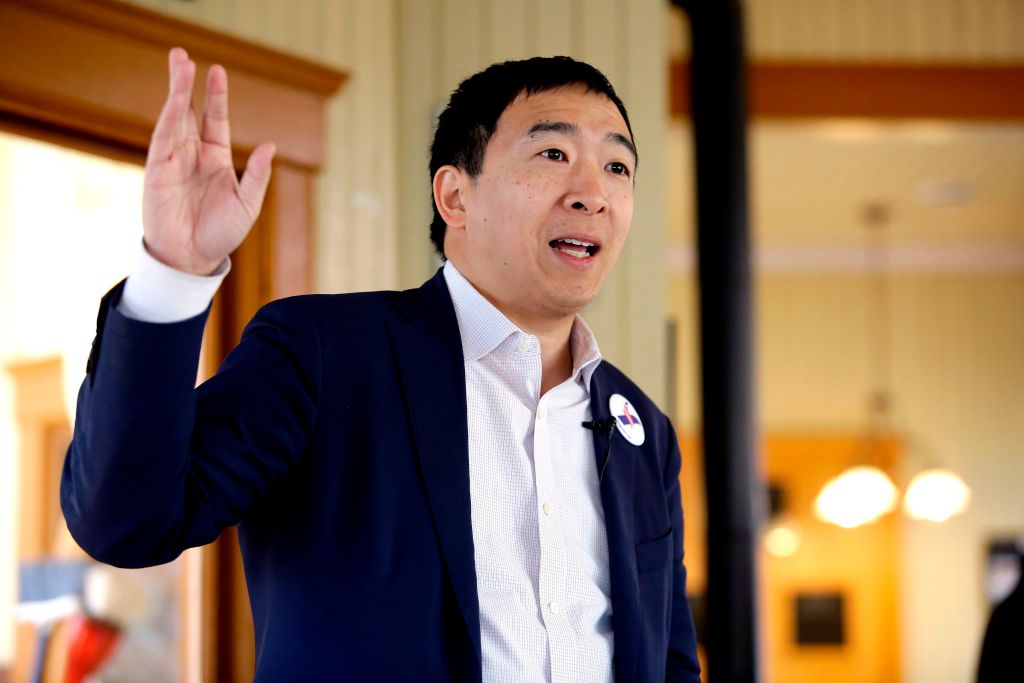
Andrew Yang, the entrepreneur who founded Venture for America, filed to run for president on November 6, 2017. His campaign’s primary policy objective is to secure what he calls a “Freedom Dividend,” which would provide every American between the ages of 18 and 64 $1,000 per month. “I’m a capitalist,” he told the New York Times in January 2018, “and I believe that universal basic income is necessary for capitalism to continue.”
Qualifications: Yang received his bachelor’s from Brown University and his law degree from Columbia. He briefly worked as a corporate lawyer, and later became CEO of test-prep company, Manhattan GMAT. In 2011, he founded Venture for America, an AmeriCorps-like program that places college graduates interested in entrepreneurship at startups in cities like Detroit, Baltimore, and Pittsburgh. Former President Barack Obama also named him a White House Champion of Change in 2012.
Rationale: The 44-year-old son of immigrants worries that advances in automation could lend to the eventual elimination of millions of jobs, including those held by truck drivers and grocery store clerks. He says his UBI proposal would help ease the burden when people stop losing their jobs. “Somehow, we’re going to have [to provide a financial solution] when 30% of the malls close in the next four years, and millions of retail workers get sent home; and when call center jobs get automated by artificial intelligence and 2.5 billion call center workers get sent home; and when trucks start driving themselves and 3.5 million truckers riot because they can no longer feed their families,” he told TIME in February.
Controversies: Yang has never been elected to a public office. However, he’s polling as well as, or even above many of his 2020 competitors who have held public office and have better name recognition. One Morning Consult survey from May placed him at 1% among Democratic primary voters nationwide and in early primary states, tied with Sen. Kirsten Gillibrand and Rep. Tim Ryan.
Rep. Seth Moulton
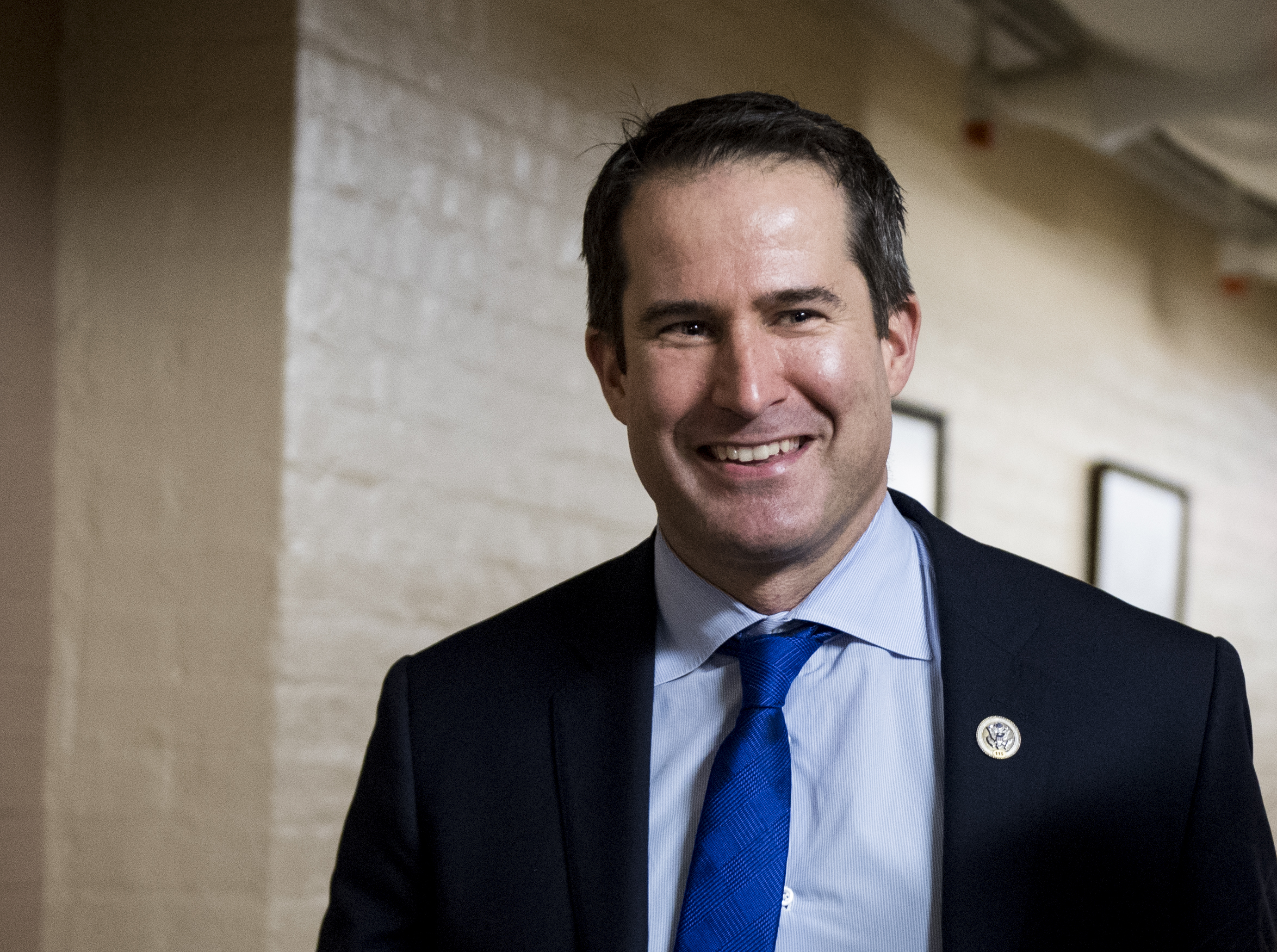
Rep. Seth Moulton announced he was running for president on “Good Morning America” on April 22. “I am running because I am a patriot, because I believe in this country and because I have never wanted to sit on the sidelines when it comes to serving it,” Moulton said. “That is why I joined that Marines, it is why I ran for Congress to try to prevent what I saw got us into Iraq from happening again, and it is why I am running to take on the most divisive president in American history to bring this country back together.”
Qualifications: A 40-year-old Marine veteran, Moulton is a three-term Congressman representing Massachusetts. He went to Harvard for his bachelor’s in physics and his master’s degree in business and public policy. Moulton also served four terms in Iraq as a Marine and was awarded the Bronze Star. He currently serves on the House committees on armed services and the budget.
Rationale: Moulton is a longshot in such a crowded field, but he was also a longshot during his first primary when he ran against a nine-term Congressman. He recalls being down over 50 points in the first poll, and hearing a pollster call his chances of winning “statistically impossible,” according to The Atlantic. Now, he’s one of the only candidates making national security a major theme. In an announcement video, he promised to cut “massive weapons programs we don’t need so that we have the money to invest in the future.” He also wants to invest in foreign aid and diplomatic relations to “help us avoid the next wars,” according to CNBC.
Controversies: Moulton is only one of 20 Democrats running for president. He’s not among the most well-known, nor one of the most experienced. He also received some negative attention for leading a failed attempt to prevent Nancy Pelosi from becoming speaker after Democrats reclaimed the chamber in the 2018 midterms.
Howard Schultz
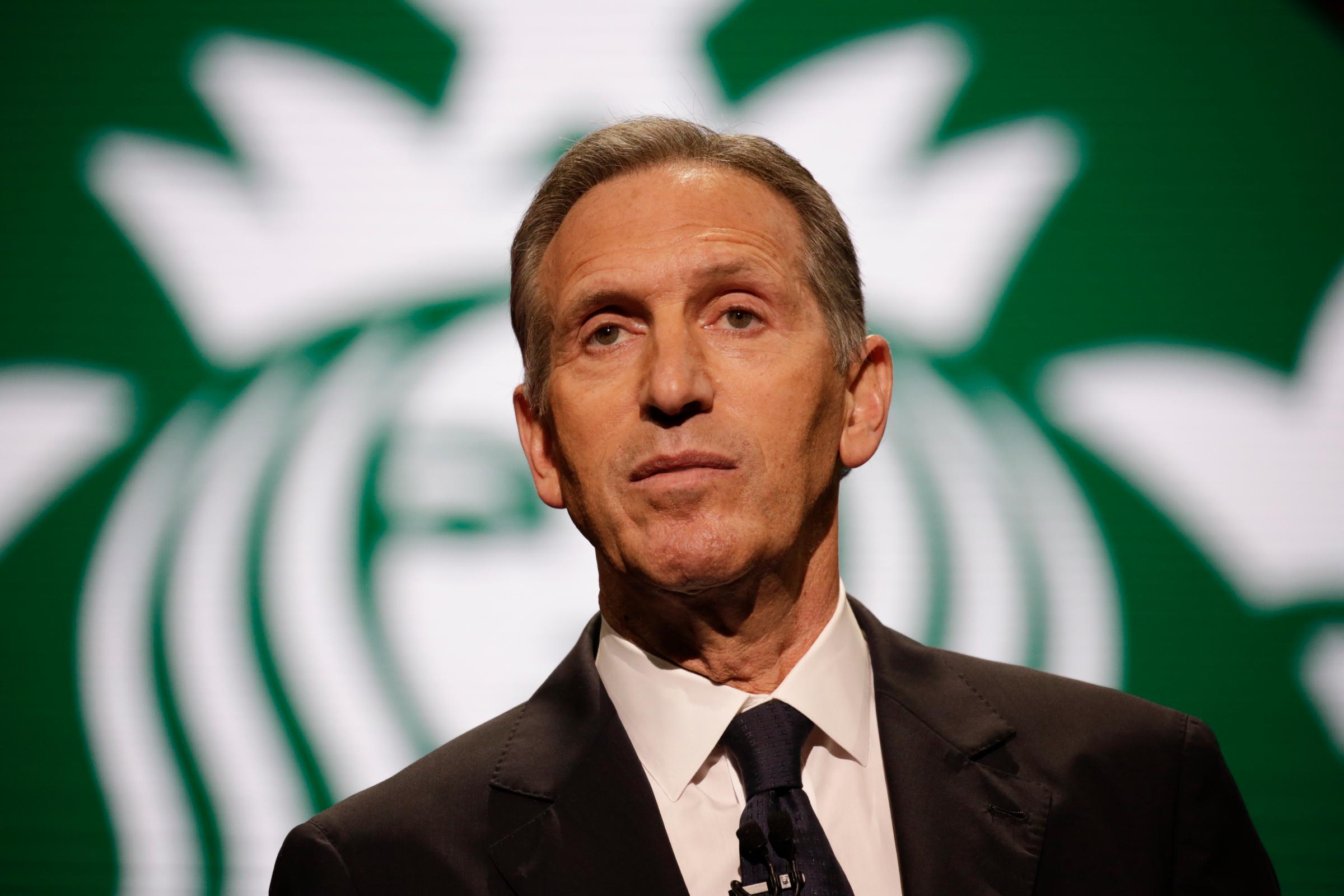
Former Starbucks CEO Howard Schultz announced he’s seriously considering a presidential run in 2020. “We’re living at a most fragile time,” Schultz said during a Jan. 27 “60 Minutes interview.” “Not only the fact that this President us not qualified to be the President, but the fact that both parties are consistently not doing what’s necessary on behalf of the American people and are engaged every single day in revenge politics.
Qualifications: Schultz grew up in blue collar household, becoming the first in his family to graduate from college after studying communications at Northern Michigan University. Post graduation, Schultz worked in sales and marketing at Xerox before rising through the ranks at a home-goods company that Starbucks bought supplies from. He lobbied for Starbucks to hire him and proceeded to rise through their ranks too, eventually becoming CEO in 1987.
Rationale: If Schultz runs in 2020, he says it will be as a “centrist independent.” He’s previously donated more than $100,000 to Democratic campaigns, but he’s also criticized the direction in which Established Democrats are moving. “It concerns me that so many voices within the Democratic Party are going so far to the left,” he told CNBC last June. Schultz could appeal to fiscally conservative but socially liberal voters.
Controversies: Schultz has never been elected to public office. He’s also faced criticism for directives advanced by Starbucks under his leadership. In 2015, in the midst of national allegations of police brutality, Schultz tried to tackle race relations by having baristas scribble “race together” on Starbucks cups. One Starbucks executive received so much negative feedback about the initiative that he temporarily deleted his Twitter account to get away from it. Schultz himself has said he dreams big — sometimes, too big. “It may be a weakness in me: I’m always wondering what I’ll do next. Enough is never enough,” he wrote in his 2012 book, “Pour Your Heart into It.”
Former Rep. John Delaney
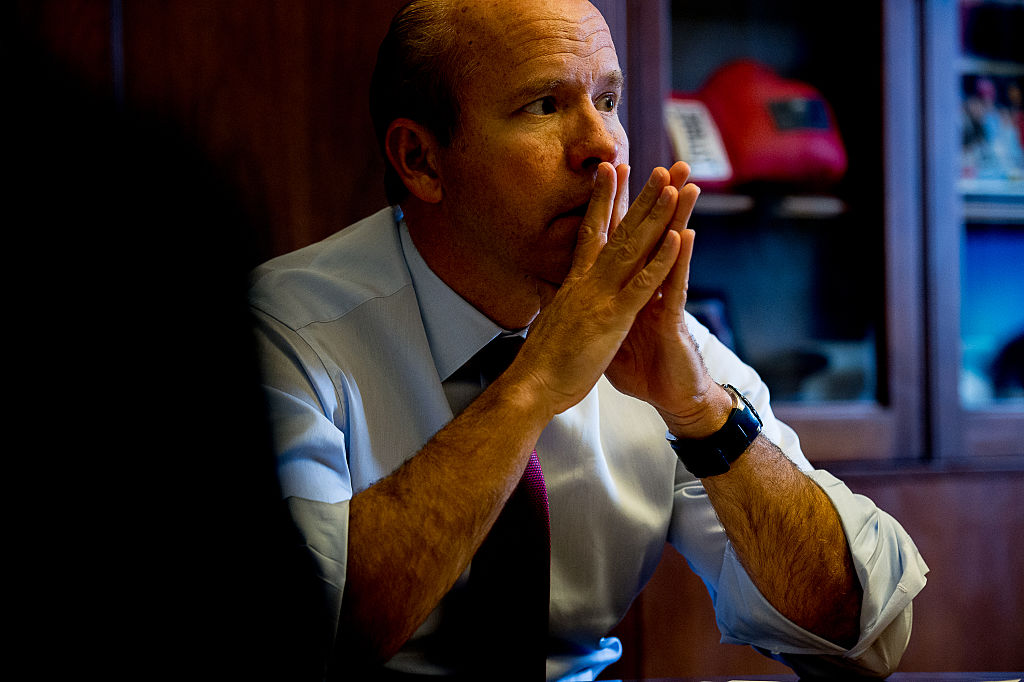
Former Rep. John Delaney doesn’t have the strongest national name recognition, nor was he in Congress that long (elected 2012). Perhaps that is why he announced his 2020 campaign so early — July of 2017, early — to get ahead of better known Democratic competitors.
Qualifications: Delaney earned a bachelor’s degree from Columbia and a law degree from Georgetown. He also launched two companies that were traded on the New York Stock Exchange. The Democrat won his first election in 2012 after significant redistricting changes were made to Maryland’s map. As a member of Congress, Delaney has introduced legislation that would end partisan gerrymandering — a political tactic that arguably helped him get his job representing Maryland’s 6th district in the first place.
Rationale: Delaney spent the better part of 2018 visiting crucial electoral states. While he’s not the only politician to have done so, he appears to be one of the only Democrats to have been forthcoming about why he’s visiting. Honesty is the best policy, Delaney told Politico. “We know they’re thinking about running for president or they’re planning on running for president, and we ask them that question directly, and they lie to us. And so our first introduction to them is based on a dishonest moment,” he said someone told him.
Controversies: Even though Delaney had visited Iowa more than 10 times in the last year, only about half of the likely Democratic caucus-goers knew who he was, Politico reported. Further, his views are more moderate than some of the other likely Democratic contenders. “I’m a big believer in the private economy and market forces, but I also believe there’s a role for government in setting the rules of the road and helping take care of the most vulnerable,” he said in 2017. That could come to hurt him as Democrats continue to prioritize progressive goals.
Montana Governor Steve Bullock
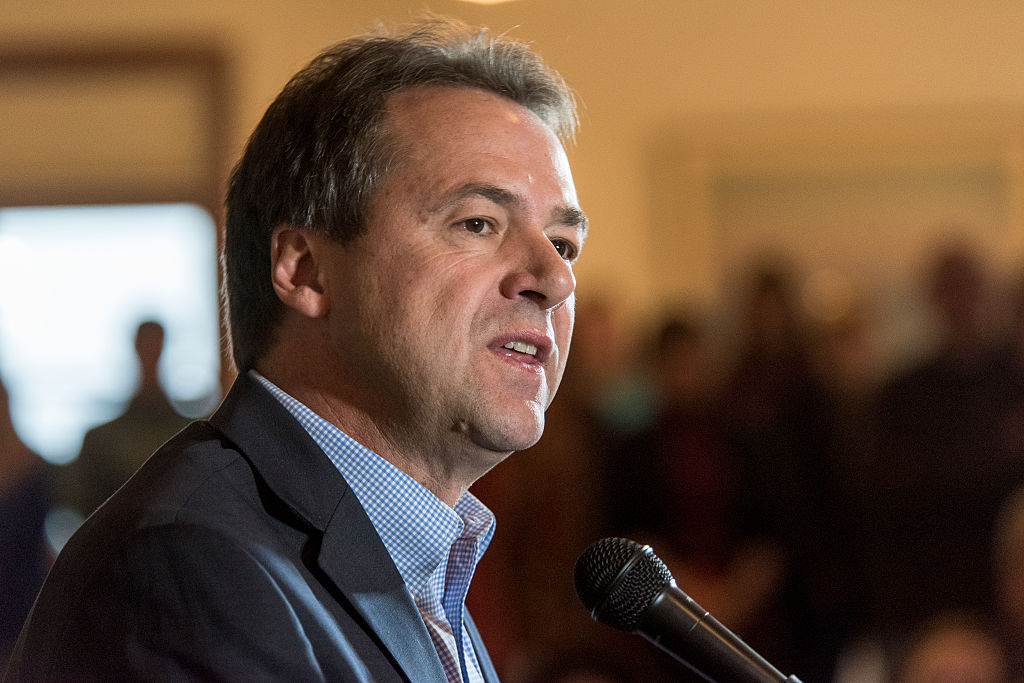
Montana Governor Steve Bullock announced he was running for President on May 14. “We need to defeat Donald Trump in 2020 and defeat the corrupt system that lets campaign money drown out the people’s voice so we can finally make good on the promise of a fair shot for everyone,” said Bullock, a Democrat who has won two gubernatorial elections in a red state.
Qualifications: Bullock received his bachelor’s degree from Claremont McKenna College and his law degree from Columbia. Before being elected governor, he previously served as Montana’s attorney general and was also the chief legal counsel to the Montana Secretary of State.
Rationale: The 53-year-old is trying to position himself as a leader who can help bridge the partisan divide. In Montana, Bullock was able to garner Republican support for progressive policies like expanding Medicaid. He’s also an advocate of campaign finance reform, which Democrats have made a priority ahead of 2020.
Controversies: Bullock dismissed former top aide Kevin O’Brien after he was made aware of sexual harassment allegations against the staffer in 2015. But he reportedly did not warn Bill de Blasio after the New York City mayor hired him weeks later. The aide was eventually fired by de Blasio’s team for additional allegations of sexual harassment. “I was wrong and naive to think I did enough. I should have done more to ensure future employers would learn of his behavior,” Bullock said in response to complaints that he should have warned de Blasio. In response to the allegations, the aide said he was “truly sorry” for what he did.
Bill de Blasio
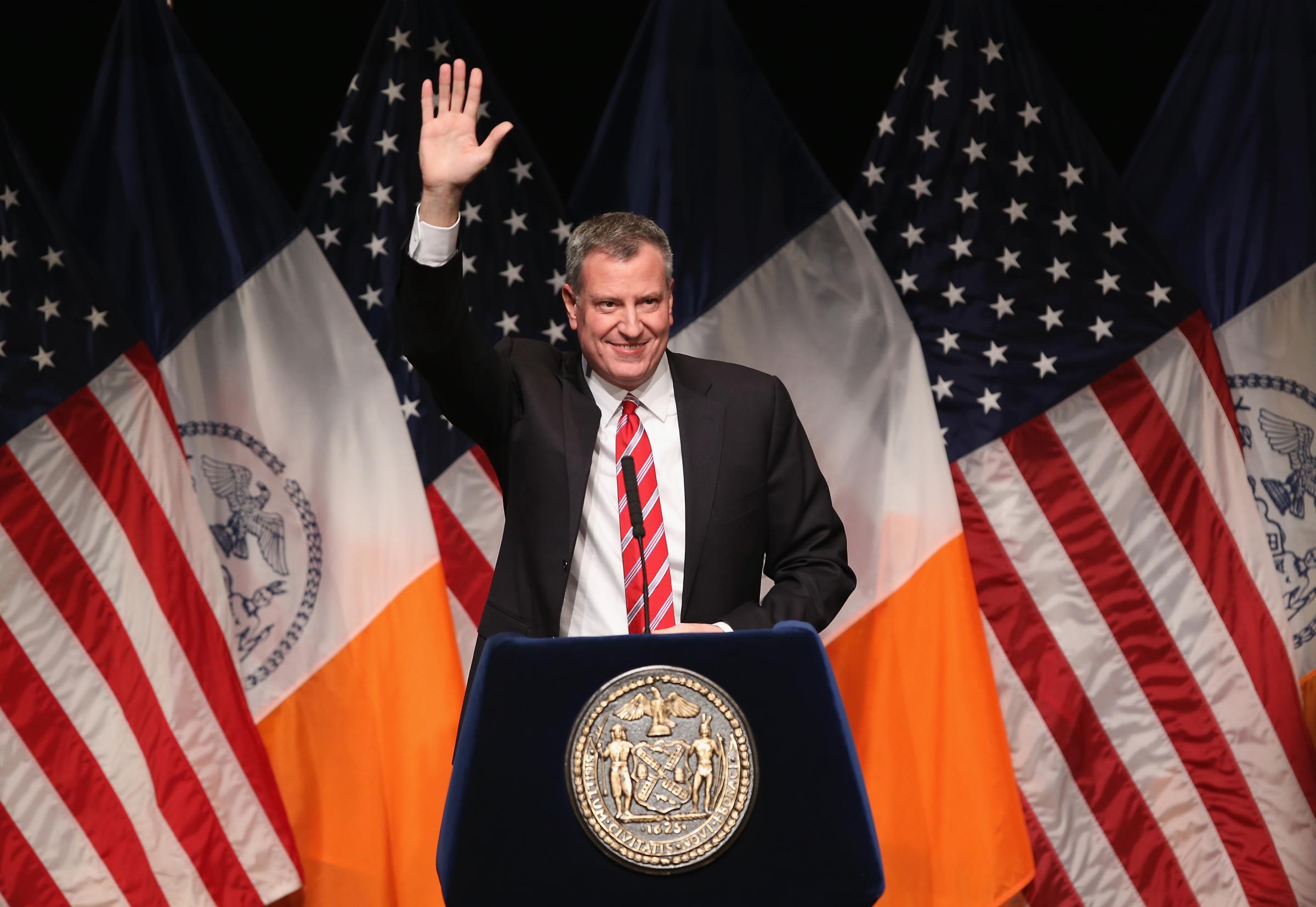
New York City Mayor Bill de Blasio announced he was running for president via video message on May 17. “As president, I will take on the wealthy. I will take on the big corporations. I will not rest until this government serves working people,” he said in the video. “As mayor of the largest city in America, I’ve done just that.”
Qualifications: De Blasio attended New York University for his bachelor’s degree and Columbia for his master’s. He worked on David Dinkins’ mayoral campaign, and then became an aide in City Hall before joining New York’s City Council in 2002 and was elected New York City’s public advocate in 2009. He’s since been elected as New York City’s mayor twice.
Rationale: The 58-year-old Democrat thinks he can help poor and middle class Americans like he helped poor and middle class New Yorkers. As mayor, he helped enact $15 minimum wage requirements and universal pre-kindergarten for four-year-olds in public schools. “Working Americans deserve better. And I know we can do it because I’ve done it here in the largest, toughest city in this country,” he said the day he announced.
Controversies: The mayor allegedly violated conflict of interest rules for soliciting donations from individuals who sought tax breaks after multiple warnings telling him not to, according to a report from the city’s inspector general first obtained by The City through public records requests. Though the report’s recommendations are redacted, a spokesperson for de Blasio said their fundraising strategies were “thoroughly reviewed by multiple parties and it was determined that there was no wrongdoing. It’s been said a million times: the mayor acted lawfully and ethically.”
Former Rep. Joe Sestak
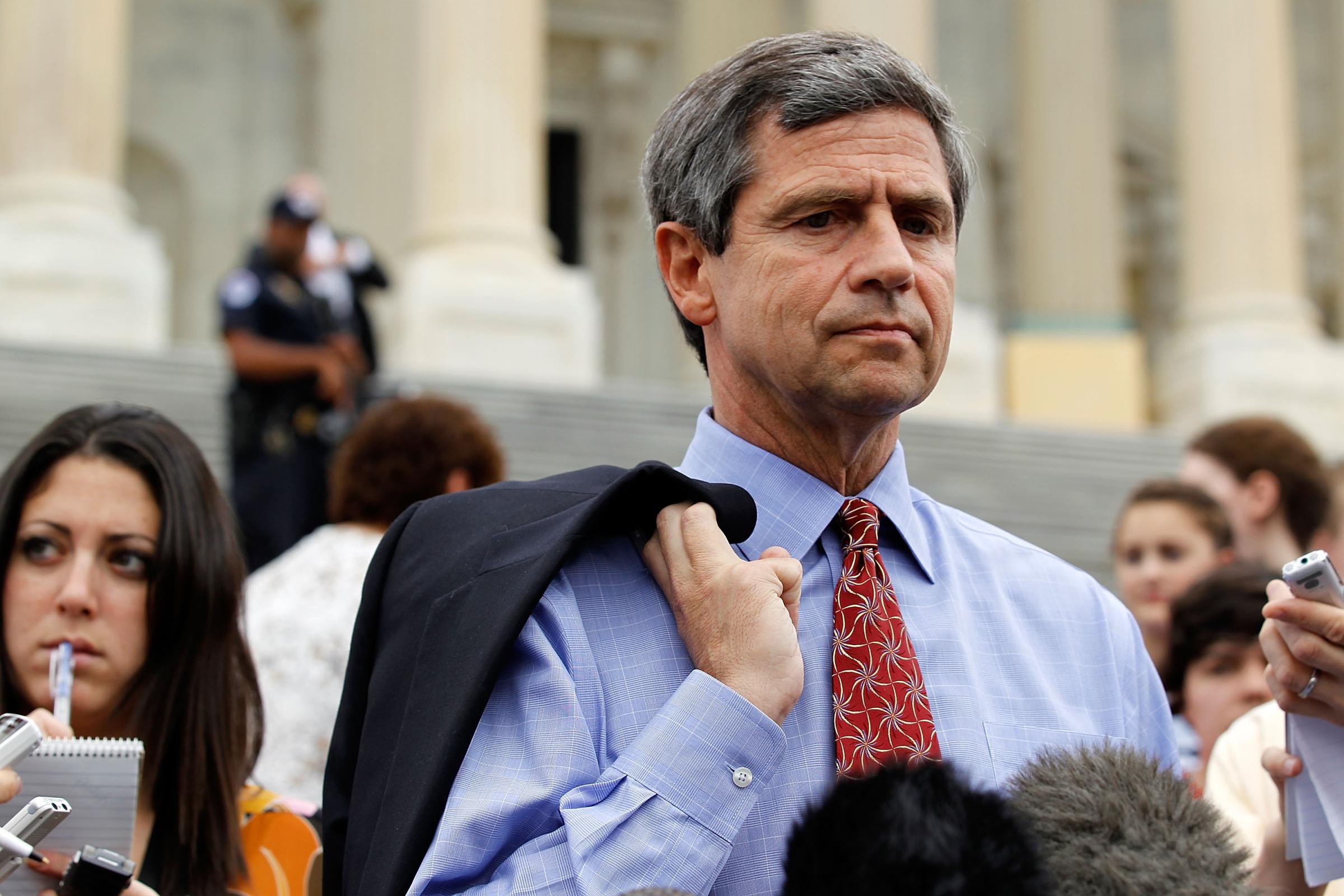
Former Pennsylvania congressman Joe Sestak announced he was running for president in late June. “Americans want someone who is accountable to them above self, above party, and above any special interest,” Sestak said.
Qualifications: Sestak attended the U.S. Naval Academy and served in the Navy for more than three decades, retiring as a three-star admiral. He was elected to the U.S. House in 2006 and served two terms.
Rationale: The Pennsylvania Democrat commanded an aircraft carrier battle group in Afghanistan and Iraq, and served under President Bill Clinton on the National Security Council. He expressed that these experiences would make him an effective president. “Our country desperately needs a president with a depth of global experience and an understanding of all the elements of our nation’s power, from our economy and our diplomacy to the power of our ideals and our military, including its limitations,” he said in a campaign video.
Controversies: In 2010, Sestak ran for an open Senate seat in Pennsylvania. He won the primary but lost in the general election. He ran again in 2016, but lost the primary. He faces more than 20 other candidates for the Democratic nomination. Sestak says he entered the race later than his Democrats opponents because he wanted to spend time with his daughter, who was battling brain cancer. He will not participate in the first round of Democratic debates.
Bill Weld
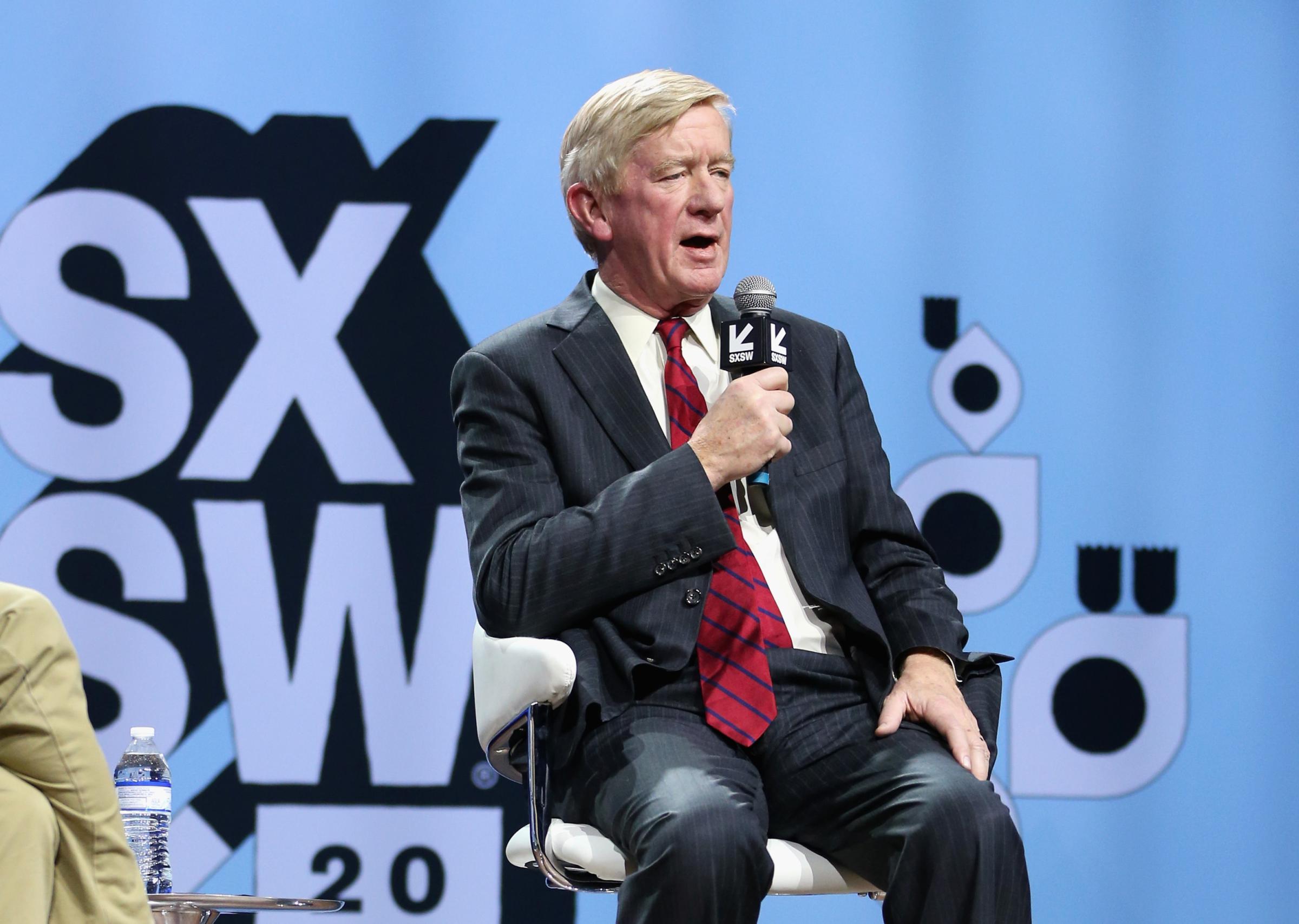
Former Massachusetts Gov. Bill Weld is Trump’s first Republican challenger. He announced he was running for president via video message in April. “Ours is a nation built on courage, resilience, and independence. In these times of great political strife, when both major parties are entrenched in their ‘win at all cost’ battles, the voices of the American people are being ignored and our nation is suffering,” Weld said.
Qualifications: Massachusetts Governor from 1991 to 1997 and vice presidential nominee for the Gary Johnson’s Libertarian ticket in 2016, Weld has been in politics for a while. He attended Harvard for both his undergraduate degree and law degree.
Rationale: A former Libertarian candidate, Weld thinks he can attract Republicans who hold more progressive social beliefs, like being pro-marijuana legalization and pro-choice. Still a Republican, he prioritizes cutting taxes and lowering government spending.
Controversies: Weld is unlikely to beat Trump, who is still at 89% approval among Republicans, according to Gallup.
Democratic mayor of Miramar, Florida Wayne Messam and author Marianne Williamson have also announced their intentions to seek the Democratic nomination in 2020.
Candidates who have dropped out
These candidates have dropped out after announcing formal campaigns, exploratory committees or national tours.
Rep. Eric Swalwell
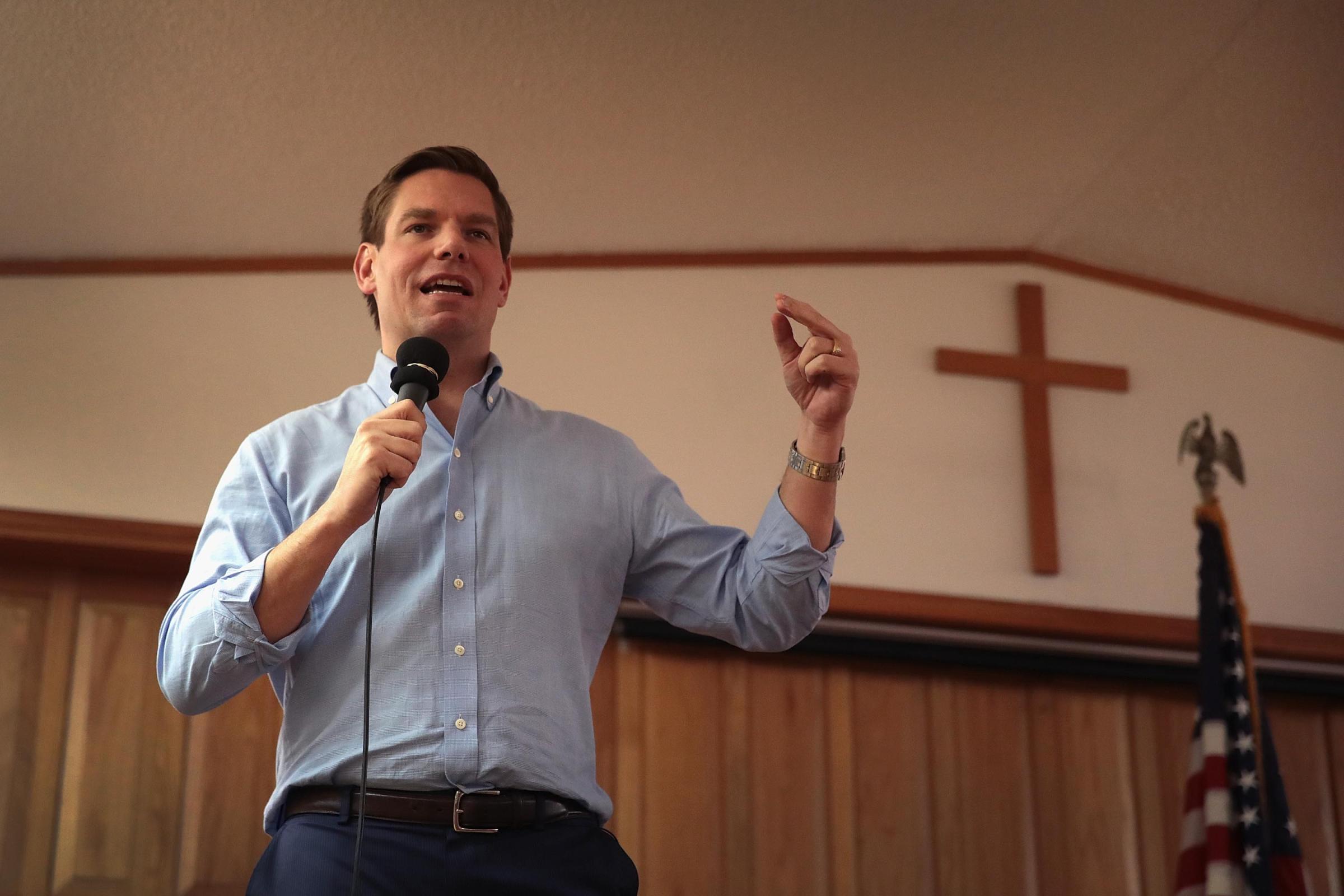
Rep. Eric Swalwell announced he was running for president on “The Late Show with Stephen Colbert” on April 8. “I’m running for president of the United States,” Swalwell said. “It’s official. Boy, did it feel good to say that.” A source told TIME on July 8 that he would end his campaign to focus on running for re-election.
Qualifications: The 38-year-old California Democrat earned his bachelor’s and law degrees from University of Maryland. He’s a four-term Congressman who currently serves on the House intelligence and judiciary committees. Before his election to the House, he was a local prosecutor and served on a city council in California.
Rationale: Like many fellow Democrats who have entered the race, Swalwell is relatively unknown on a national scale, but he thinks he can get the country to focus on things like gun control. “I’ve talked to kids who sit in their classroom afraid that they’ll be the next victim of gun violence. And they see Washington do nothing about it after the moments of silence,” Swalwell said in his television announcement. “None of that is gonna change until we get a leader who’s willing to go big on the issues we take on, be bold in the solutions we offer and do good in the way that we govern.”
Controversies: Swalwell is an outspoken critic of Trump. Earlier this year, he made a public display of not buying coffee from Trump Tower in New York City out of spite. “It’s snowing in New York,” he wrote. “I need coffee. The closest cafe is inside Trump Tower. This is me walking to an alternative.”
Sen. Sherrod Brown
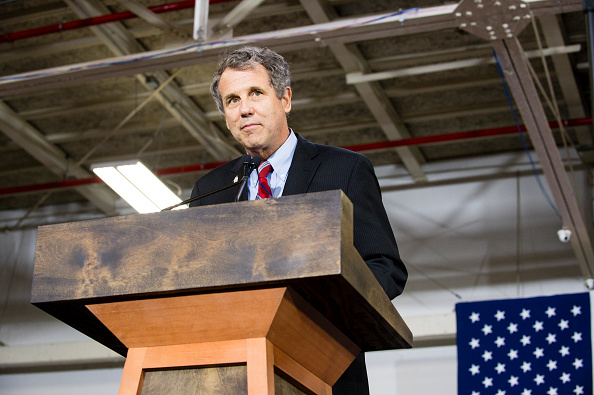
Sen. Sherrod Brown officially bowed out of the 2020 presidential race on March 7. “I will do everything I can to elect a Democratic president and a Democratic Senate in 2020. The best place for me to make that fight is in the United States Senate,” he said in a tweet. Prior to his announcement, he had been visiting early primary and caucus states on what he called a “dignity of work” tour. I haven’t had this dream to be president my whole life or even as a kid or any time,” Brown told the Cincinnati Enquirer in November. “I’d be lying if I said I wasn’t considering it.”
Qualifications: The Ohio Democrat received a bachelor’s degree from Yale and two Master’s degrees from Ohio State University. Before being elected to the Senate in 2006, Brown served as a state legislator, Ohio’s secretary of state, and a member of the House of Representatives for seven terms.
Rationale: Brown is a liberal Democrat and avid proponent of American manufacturing. He’s led opposition movements against the North American Free Trade Agreement and has argued for reform on Wall Street to protect individuals over corporations. A former public school teacher, one of Brown’s priorities is funding education and job training. His approval rating in Ohio, a crucial swing state that has been swinging more red than blue, is strong. In a recent favorability poll matching up Brown and Trump, Brown bested the sitting commander-in-chief, 48% to 42% in his home state. He hoped his brand of Midwestern liberalism could help sway blue collar voters who picked Trump in 2016: “Whether you swipe a badge or punch a clock, whether you work on a salary, whether you’re raising kids — I don’t think Washington gets the dignity of work,” he said in November.
Controversies: Brown’s first wife had alleged she feared for her safety and the safety of their children when they were getting divorced in the late 1980s. When GOP operatives tried to use his divorce papers for political gain in Brown’s most recent re-election campaign, his first wife pushed back against the claims: “I was proud to support Sherrod in 2006 and 2012 — just as I am this time around. Anyone who suggests he is not an honorable man is just wrong,” she said.
Richard Ojeda
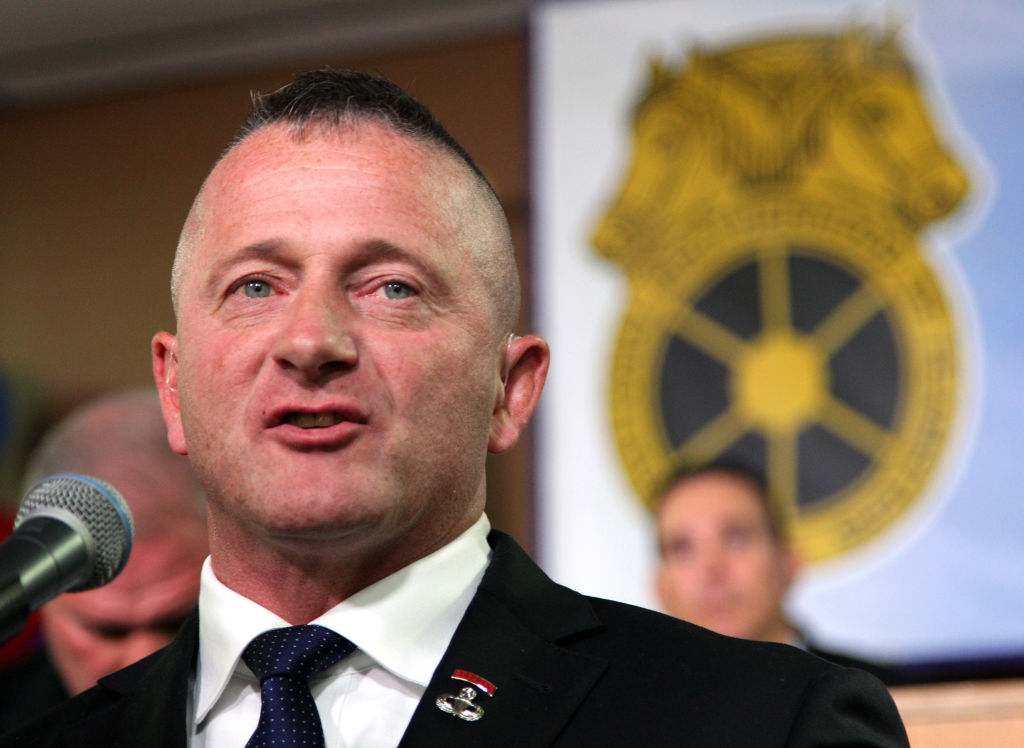
Ojeda is a retired Army major, former Democratic state senator and failed West Virginia congressional candidate. He entered the race in November of 2018, only to announce he was dropping out in January of 2019. “When I was a child my grade school teachers told us all that anyone in America could grow up and become president. I now realize that this is not the case,” his public Facebook post read.
Qualifications: Unlike the current commander-in-chief, Ojeda has more than 20 years of military experience. On Jan. 14, he resigned from his post as a state senator in West Virginia, where he started gaining national notoriety for making a series of impassioned speeches advocating for teacher raises. He went on to lead the state’s teacher strike, which did help them secure them better pay.
Rationale: Ojeda didn’t attend Ivy League schools, hail from a political dynasty or make millions as a businessman, but he thought he could represent the millions of Americans who also fall outside those categories. “We have not had people that have really fought for the working-class citizens in this country,” he said, regarding his decision to run.
Controversies: Other than being relatively unknown in areas outside of West Virginia, Ojeda admitted to voting for Trump in 2016, which could have upset Democrats who abhor him. He also said he regrets the vote, which could have upset conservative Trump supporters who may have considered a Democrat like Ojeda.
This post will be updated as individuals elect to enter and exit the race.
More Must-Reads from TIME
- Caitlin Clark Is TIME's 2024 Athlete of the Year
- Where Trump 2.0 Will Differ From 1.0
- Is Intermittent Fasting Good or Bad for You?
- The 100 Must-Read Books of 2024
- Column: If Optimism Feels Ridiculous Now, Try Hope
- The Future of Climate Action Is Trade Policy
- FX’s Say Nothing Is the Must-Watch Political Thriller of 2024
- Merle Bombardieri Is Helping People Make the Baby Decision
Write to Abby Vesoulis at abby.vesoulis@time.com
